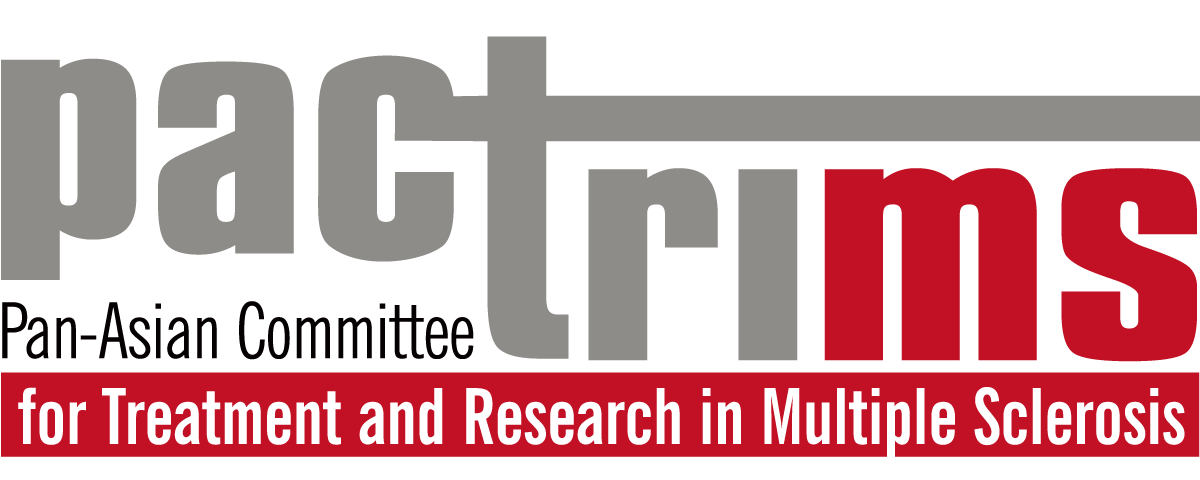Cancelling your registration will remove your access to the event. If you proceed, you will no longer be able to participate or access event-related materials.
Deleting your account will remove your access to the event.
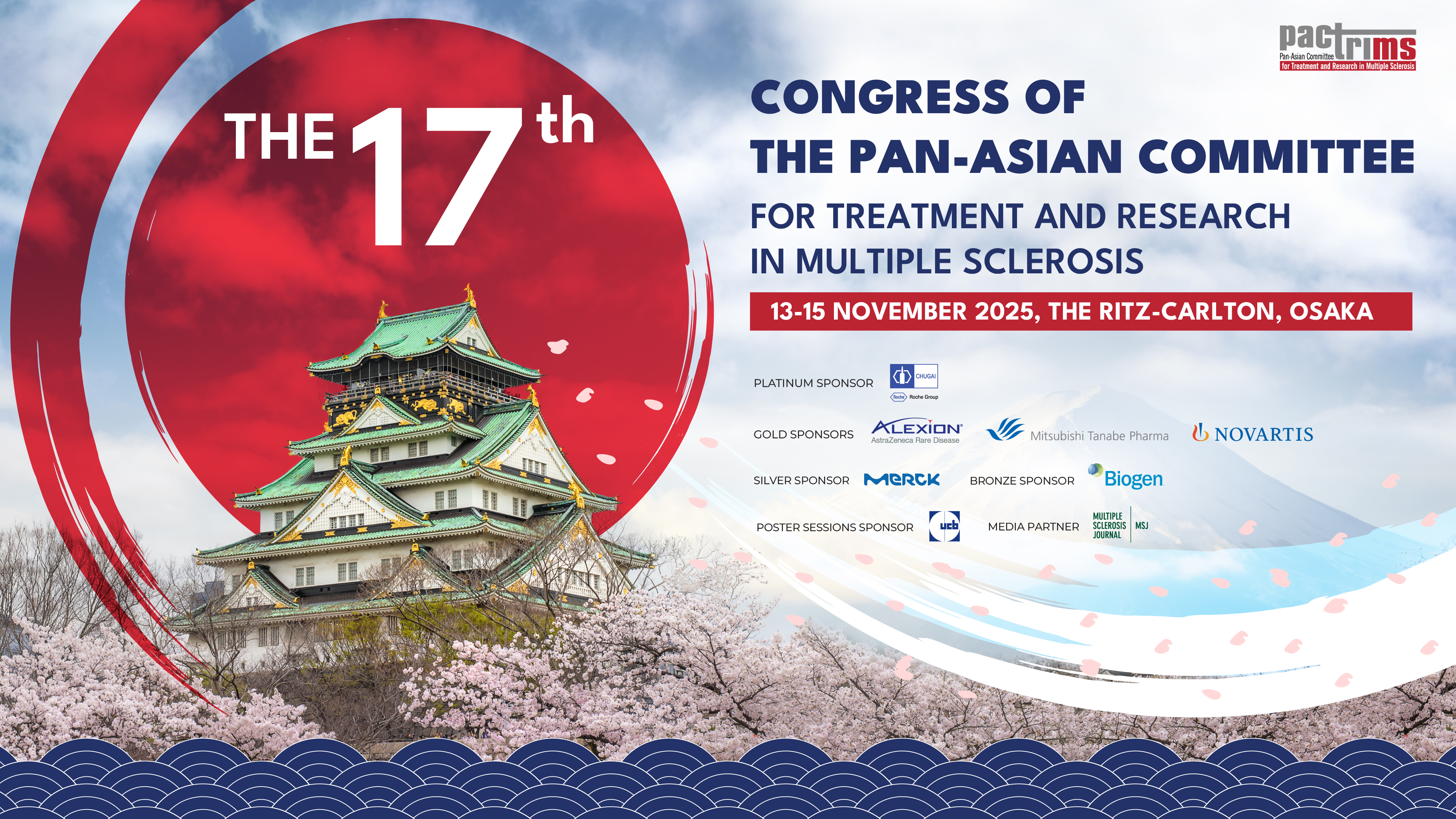
Countdown to the Virtual Event
Welcome to the 17th Annual PACTRIMS Congress
We are delighted to announce that the 17th Annual PACTRIMS Congress will be held from 13 to 15 November 2025 in the vibrant city of Osaka, Japan. Following our successful gathering in Bangkok last year, we look forward to reconvening in Osaka—a city renowned for its rich history, dynamic culture, and exceptional hospitality.
This year's congress will take place at The Ritz-Carlton, Osaka, an elegant venue situated in the heart of the Umeda district. Known for its blend of 18th-century European charm and modern luxury, the hotel offers state-of-the-art conference facilities, including the Grand Ballroom, which can accommodate up to 1,500 guests. Special guest rates have been reserved specially for our delegates so don’t forget to book your hotel with us.
Osaka, often referred to as "Japan's kitchen," is celebrated for its culinary delights, from street food favorites like takoyaki and okonomiyaki to Michelin-starred restaurants. Beyond its gastronomic offerings, the city boasts a wealth of cultural landmarks, including the historic Osaka Castle and the bustling Dōtonbori district.
In 2025, Osaka will also host the World Expo, highlighting its commitment to innovation and global collaboration. This international event underscores the city's role as a hub for forward-thinking ideas and cultural exchange.
We invite you to join us in Osaka for an engaging and enriching congress experience.
Dear Friends and Colleagues,
On behalf of the Local Organizing Committee, it is my great pleasure to invite you to the 17th Annual Congress of the Pan-Asian Committee for Treatment and Research in Multiple Sclerosis (PACTRIMS), taking place 13–15 November 2025 at The Ritz-Carlton Osaka.
Following the successful gathering of our community at the 16th Congress in Bangkok, where we strengthened regional and global collaborations, we are excited to bring this year’s meeting to the dynamic city of Osaka, known for its rich cultural heritage, innovation, and warm hospitality. PACTRIMS will return to Japan for the second time following the 6th Annual Congress of PACTRIMS which was held in Kyoto in November 2013 and hosted by Prof. Takahiko Saida, the first President of PACTRIMS.
This year’s congress will center around six key scientific themes that reflect both global advances and region-specific challenges in the field of MS and related disorders:
These themes aim to foster deep scientific exchange while addressing the evolving landscape of neuroimmunology in Asia. The program will feature plenary lectures, symposia, interactive sessions, and poster presentations, as well as focused opportunities for early-career professionals to engage in mentorship and career development.
Osaka offers a unique setting where tradition and progress coexist—from the historical beauty of Osaka Castle to the modern vibrancy of the Dōtonbori district. We hope this congress not only enriches your professional knowledge but also provides time for cultural discovery and meaningful connections.
As Professor of Multiple Sclerosis Therapeutics at Fukushima Medical University and Director of the MS & NMOSD Centre, STRINS, it is a true honour to serve as the Local Organizing Chairperson. I look forward to welcoming you to Japan and to an exciting, inspiring, and forward-looking PACTRIMS 2025.
Yōkoso! Welcome to Osaka, and welcome to PACTRIMS 2025.
Warmest regards,
Kazuo Fujihara, MD, PhD
Local Organizing Chairperson, 17th PACTRIMS Congress
Professor, Department of Multiple Sclerosis Therapeutics, Fukushima Medical University
Director, Southern TOHOKU Research Institute for Neuroscience (STRINS), Japan
President Emeritus, PACTRIMS Executive Committee
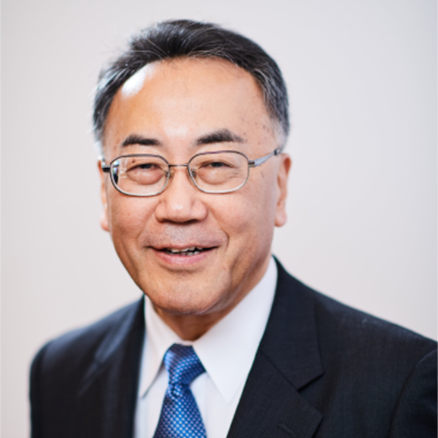
|
SPECIALIST/PHYSICIAN/RESEARCHER/ INDUSTRY/ CORPORATE STAFF |
Early Bird Rate (USD) Now till 15 Sep 2025 |
Regular Rate (USD) 16 Sep to 05 Oct 2025 |
On-site Rate (USD) 13 Nov to 15 Nov 2025 |
|---|---|---|---|
| PACTRIMS CONGRESS, 13 Nov to 15 Nov | 550 | 650 | 750 |
|
POST GRADUATE STUDENT/TRANING NEUROLOGIST/NURSE/ALLIED HEALTH PROFESSIONAL/PHARMACIST* |
Early Bird Rate (USD) Now till 15 Sep 2025 |
Regular Rate (USD) 16 Sep to 05 Oct 2025 |
On-site Rate (USD) 13 Nov to 15 Nov 2025 |
|---|---|---|---|
| PACTRIMS CONGRESS, 13 Nov to 15 Nov | 300 | 300 | 400 |
In an effort to forge a diversified MS community within the Asia Pacific Region, the PACTRIMS Travel Grant contributes funds to qualifying individuals’ travel expenses for Congress participation. This is done to encourage participation from healthcare professionals in the Asia Pacific Region, increasing the prominence and importance of research and interest in Multiple Sclerosis (MS) in the Region and encourage mutually beneficial interaction among MS healthcare professionals.
A limited number of 25 travel grants each USD1,000, will be made available to young scientists aged 35 or younger (born on or after 1 January 1990) and whose abstracts have been accepted for oral or poster presentations.
1. Eligibility
2. Instructions for submission
Qualifying individuals must fill out an APPLICATION FORM; download ONLINE or from the registration desk during the Congress and to submitted in person at the registration desk during the congress from 13-15 November 2025.
The following items are important and compulsory in your submission:
3. Payment
4. Submission Deadline
Completed applications and accompanying documents must be received by the Secretariat on-site from 13 November to 15 November 2025 and no later than 10.00am on 15 November 2025 (Japan local time). Late submissions will not be accepted and please adhere strictly to this deadline.
LOW-INCOME ECONOMIES
LOWER-MIDDLE INCOME ECONOMIES
 13:00-17:30
13:00-17:30| Time | Topics | Speakers |
|---|---|---|
| 13:00-13:05 | Welcome Address by the Local Organizing Chairperson | Kazuo Fujihara (Japan) |
| 13:05-13:10 | Opening Address by the President | Ho Jin Kim (Korea) |
| 13:10-13:15 | Special Address by the Guest of Honour | Takeshi Tabira (Japan) |
 13:15-14:45
13:15-14:45| Time | Topics | Speakers |
|---|---|---|
| 13:15-13:40 | L1. Utility of serum NfL and GFAP in monitoring MS disease activity and progression | Jens Kuhle (Switzerland) |
| 13:40-14:05 | L2. Biomarkers in NMOSD | Su Hyun Kim (Korea) |
| 14:05-14:30 | L3. Biomarkers in MOGAD | Yoshiki Takai (Japan) |
| 14:30-14:45 | Q&A | |
| 14:45-15:15 | Coffee Break (Meet The Experts 1 & Poster Viewing Session 1) Chairperson: Noriko Isobe (Japan), Meet The Expert: Ho Jin Kim (Korea) |
|
| 15:15-16:15 | Novartis Sponsored Symposium Toward a New Standard in MS Care: The Science and Practice of Early HET Initiation |
Kazuo Fujihara (Japan) Jin Nakaraha (Japan) Tobias Derfuss (Switzerland) Chao Quan (China) |
| 16:30-17:30 | ORAL PRESENTATION PART ONE - 5 presentations Chairpersons: Kevin Tan (Singapore) & Ichiro Nakashima (Japan) |
|
| 19:00-21:00 | Welcome Reception |
 08:00-18:30
08:00-18:30| Time | Topics | Speakers | |
|---|---|---|---|
| 08:00-09:00 | Alexion Sponsored Symposium Complement Component 5 Inhibitor Therapies (C5ITs) in Neuromyelitis Optica Spectrum Disorder (NMOSD): Clinical Insights and Real-World Evidence |
Jin Nakahara (Japan) Orhan Aktas (Germany) Noriko Isobe (Japan) |
|
 9:15-10:45
9:15-10:45| Time | Topics | Speakers |
|---|---|---|
| 9:15-9:40 | L4. PIRA in MS and other diseases | Chao Zhu (Australia) |
| 9:40-10:05 | L5. PIRA in clinical practice and research: Opportunities and Challenges | Tomas Kalincik (Australia) |
| 10:05-10:30 | L6. Determinants and biomarkers for PIRA in MS | Carlos Camara-Lemarroy (Canada) |
| 10:30-10:45 | Q&A | |
| 10:45-11:15 | Coffee Break (Meet The Experts 2 & Poster Viewing Session 2) Chairperson: Noriko Isobe (Japan), Meet The Expert: Lekha Pandit (India) |
|
| 11:15-12:15 | ORAL PRESENTATION PART TWO - 5 presentations Chairpersons: Jennifer Massey (Australia) & Kazuo Fujihara (Japan) |
|
| 12:30-13:30 | Chugai Sponsored Symposium (with lunch provided) Optimizing Satralizumab Use in NMOSD Chairperson: Kazuo Fujihara (Japan) |
Jin Nakaraha (Japan) Makoto Kinoshita (Japan) |
 13:45-15:15
13:45-15:15| Time | Topics | Speakers |
|---|---|---|
| 13:45-14:10 | L7. Strategy to meet therapeutic needs in Asia | Osamu Kagawa (Japan, Chugai) |
| 14:10-14:35 | L8. Ethical use of off-label disease-modifying therapies for MS | Shanthi Viswanathan (Malaysia) |
| 14:35-15:00 | L9. Essential Drugs for MS treatment | Tapas Kumar Banerjee (India) |
| 15:00-15:15 | Q&A | |
| 15:15-15:45 | Coffee Break (Meet The Experts 3 & Poster Viewing Session 3) Chairperson: Noriko Isobe (Japan), Meet The Expert: Allan Kermode (Australia) |
 15:45-17:05
15:45-17:05| Time | Topics | Speakers |
|---|---|---|
| 15:45-16:00 | L10. Application of the 2024 McDonald criteria in Asian populations: Earlier diagnosis or earlier misdiagnosis? | Sasitorn Siritho (Thailand) |
| 16:00-16:15 | L11. Novel MRI criteria for MS diagnosis: Insights from Japan | Koji Shinoda (Japan) |
| 16:15-16:30 | L12. Methodology and Impact of Cell-Based Assay on Diagnosis of NMOSD & MOGAD in India | Lekha Pandit (India) |
| 16:30-16:45 | L13. Diagnosis and evaluation of MOGAD: Perspectives from China | Ziyan Shi (China) |
| 16:45-17:05 | Q&A | |
| 17:20-18:30 | Poster Presentation | 3mins presentation/2mins Q&A x ~10 booths |
 13:45-15:15
13:45-15:15| Time | Topics | Speakers |
|---|---|---|
| 13:45-14:10 | E1. Immunology of MS | Jennifer Massey (Australia) |
| 14:10-14:35 | E2. Treatment and Safety Monitoring in MS and NMOSD | Ichiro Nakashima (Japan) |
| 14:35-15:00 | E3. Approach to pregnancy and breastfeeding in MS / NMOSD | Isabel Leite (UK) |
| 15:00-15:15 | Q&A |
 15:45-17:05
15:45-17:05| Time | Topics | Speakers |
|---|---|---|
| 15:45-16:05 | L14. A clinical and academic journey into neuroimmunology | Mastura Monif (Australia) |
| 16:05-16:25 | L15. Keys for clinical academic career development | Ching-Piao Tsai (Taiwan) |
| 16:25-16:45 | L16. Strategies to enrich academic careers and mentorship | Fabienne Brilot (Australia) |
| 16:45-17:05 | Q&A |
 9:00-12:20
9:00-12:20| Time | Topics | Speakers |
|---|---|---|
| 9:00-10:00 | Mitsubishi Tanabe Sponsored Symposium The Role and Significance of B Cell Suppression in NMOSD |
Ho Jin Kim (Korea) Kazuo Fujihara (Japan) |
| 10:00-10:20 | Coffee Break |
 10:20-11:50
10:20-11:50| Time | Topics | Speakers |
|---|---|---|
| 10:20-10:45 | L17. Management of multiple sclerosis in older adults | Helmut Butzkueven (Australia) |
| 10:45-11:10 | L18. How to treat elderly patients with MS; from MSBase Study | Yi Chao Foong (Australia) |
| 11:10-11:35 | L19. How to treat elderly patients with NMOSD | Ki Hoon Kim (Korea) |
| 11:35-11:50 | Q&A |
 12:00-12:20
12:00-12:20| Time | Topics | Speakers |
|---|---|---|
| 12:00-12:15 | Poster Award ceremony | Noriko Isobe (Japan) |
| 12:15-12:20 | Closing Remarks by the Vice-President | Allan Kermode (Australia) |
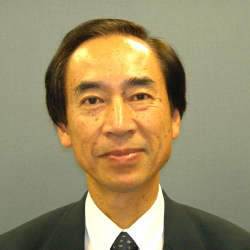
Visiting Professor, Graduate School of Medicine, Juntendo University Chairman, Japan MS Society

Professor of Neuroimmunology and Principal Research Fellow at the University of Sydney, Australia
Fabienne Brilot is Professor of Neuroimmunology and Principal Research Fellow at the University of Sydney, Australia. Her research focuses on immune-mediated brain disorders such demyelinating disorders, such as Myelin Oligodendrocyte Glycoprotein Antibody-associated Disease (MOGAD) and autoimmune neurological diseases. Her group aims to discover biomarkers and explores the autoimmune response in patients to improve their diagnosis and treatment.
She has published 134 publications that have been cited 11977 (Google Scholar), and her H index is 56.
Abstract of Lecture:
Mentorship and sponsorship are key components of a successful academic career. However, accessibility to mentorship schemes varies. If available, questions remain on how mentorship really works and whether the substantial investment in time will lead or not to tangible benefits.
In this lecture, different strategies to enrich academic careers and to maximize opportunities and benefits of mentorship will be discussed.
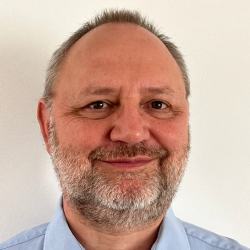
Van Cleef Chair of Neuroscience, Head of Department of Neuroscience, STM, Monash University and Director of Neurology Alfred Health, Melbourne, Australia
Professor Helmut Butzkueven is a neurologist clinician-scientist, registry leader, translational researcher, and institutional leader. He is the Director of Neurology at Alfred Health (a 2024 Top 100 Global Hospital), and the van Cleef Roet Professor and Head of the Department of Neuroscience at Monash University's School of Translational Medicine. He holds an NHMRC L1 Investigator Grant and is ranked as the number one MS researcher in Australia and in the global top 40 (Expertscape). With 426 peer-reviewed publications and over 28,800 citations (H-index 76), he has made significant contributions to MS and Neuro-immunology research and treatment globally.
He is the co- founder and Managing Director of MSBase, the world's largest international MS registry. For 24 years, his leadership has facilitated research access to this essential platform containing over 125,000 structured patient records from more than 200 centres across 50 countries, and more than 30,000 quantitatively analysed brain MRI scans through the MSBase Imaging Repository.
My area of greatest research interest is registry outcomes research to optimise safety and effectiveness for disease modifying treatments. I am also interested in active and passive patient self-monitoring tools of neurological function in MS.
Number of peer-reviewed publications : 427
Abstract of Lecture:
Populations in many of the PACTRIMS region nations are ageing rapidly. For the MS clinician, this means there are an increasing number of older people requiring expert care. Trial data in older people is very sparse, because MS trials exclude patients over the age of 55. Older people are much more vulnerable to infections such as pneumonia (3-fold increase over 65), urinary tract infections (20-fold increase over 65), herpes zoster re-activation, and skin cancers. They are therefore much more vulnerable to infective and malignant complications of immune-suppressive treatments for MS. Immunisation affords significant protection from many infections, but immunisation rates in older people are often low. In general, we also see lower relapse rates, lower new MRI lesion accumulation and more progressive MS in older compared to younger MS patients. Therefore, treatment de-escalation and, in some cases, discontinuation are options that require careful risk-benefit evaluation. New international guidelines for these scenarios suggest we should consider de-escalation in stable MS patients over the age of 60. De-escalation or discontinuation strategies differ for anti-CD20 drugs versus anti-trafficking drugs such as fingolimod and natalizumab, because sudden stop carries the risk of severe rebound relapse for the latter. A proposed algorithm will be presented.
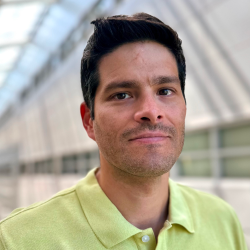
Associate Professor, University of Calgary, MS Clinic and Department of Clinical Neurosciences
Dr. Carlos Camara completed his internal medicine and neurology residencies at the UANL University Hospital in Monterrey, Mexico. He subsequently completed a two-year clinical and research MS and Neuroimmunology fellowship at the University of Calgary. He is an associate professor of Neurology and Staff at the University of Calgary MS Clinic. His current research interests include the gut-brain axis, biomarkers and neuroprotection in MS and neuroinflammatory disorders of the CNS. The main focus of this work is translational, where basic neuroscience research is developed into clinical applications and novel therapies for MS and related disorders.
116 publications, H-index 29
Abstract of Lecture:
MS is thought of as a spectrum consisting of neuroinflammatory and neurodegenerative processes. The contribution of each of these biological pathways to disability accumulation (DA) is complex. PIRA is a heterogeneous term proposed to indicate the presence of DA in RRMS in the absence of "overt" neuroinflammation, clinically manifesting as relapses. Defined as such, PIRA may be associated with DA more often that clinical relapses. In turn, PIRA is suggested to reflect neurodegenerative processes in RRMS. However, PIRA is a construct of arbitrary timelines and ignores MRI activity indicative of focal neuroinflammation, and can be defined as broadly or narrowly as it is convenient. PIRA thus appears to depend on "word games" instead of a thorough biological basis. Nonetheless, the final frontier in MS phenotyping is achieving a biological based definition of disease, as in the fields of Alzheimer´s or Parkinson´s, and this is highlighted in upcoming revisions of the MS diagnostic criteria. In this talk, the challenges in defining PIRA in a biologically meaningful way are discussed. A proposal for a shift towards clinical-centric and patient-relevant definitions is advanced. Finally, the impact of these issues to MS therapeutic research is highlighted.
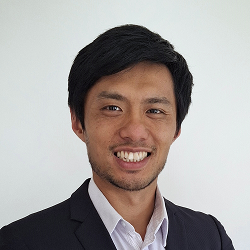
Consultant Neurologist, Head of MS/Neuroimmunology, Tasmanian Health Service Research Fellow, Menzies Institute of Medical Research
Dr. Foong Yi Chao is the head of multiple sclerosis (MS) and neuroimmunology at the Tasmanian Health Service and a postdoctoral fellow at the MS research flagship, Menzies Institute of Medical Research, University of Tasmania. His current research focuses on digital biomarkers and improving outcomes for elderly people with MS using registry data.
Abstract of Lecture:
Over half of people with multiple sclerosis (pwMS) are now aged ≥50. In this cohort, inflammatory activity is reduced, but disability progression remains common. Comorbidities and risk of adverse events further influence the risk-benefit ratio of disease-modifying therapy (DMT) use. Drawing on recent clinical trial findings and large-scale observational data, including analyses from the MSBase registry, this lecture will explore the evolving evidence on DMT use in older pwMS. We will address which patients may still benefit from high-efficacy therapies and when to consider de-escalation or discontinuation.
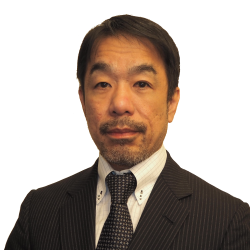
Chair, Asia Committee, International Affairs, Japan Pharmaceutical Manufacturers Association (JPMA) Executive Manager, Business Insight Strategy Department, Chugai Pharmaceutical
Drawing from over 14 years of overseas business experience, particularly in Asia, Mr. Kagawa possesses a deep understanding of market dynamics and regulatory frameworks. During his long-term assignment in Taiwan, he successfully led the launch of multiple products and managed pricing negotiations, contributing to continuous business growth. He now applies this extensive background as a Business Leader at Chugai's headquarters, where he is responsible for the global oversight of the innovative product, Enspryng.</span >
In his role as Chair of the JPMA International Affairs Asia Committee, he leads advocacy efforts aimed at promoting Universal Health Coverage (UHC) and financial sustainability across Asian countries. His work focuses on fostering a collaborative environment through policy dialogues with Japanese government bodies and Asian authorities to promote innovative funding models and the strategic use of private health insurance. He also leads industry activities in countries such as India, China, S.Korea, Taiwan and ASEAN region, holding bilateral meetings to address specific, pressing market access issues. By resolving these market access issues, the ultimate goal is to ensure that innovative medicines reach patients across the region.</span >
Abstract of Lecture:
The increasing introduction of innovative medicines presents a significant opportunity to transform patient care, yet it also poses a considerable challenge to the sustainability of healthcare systems across Asia. Many of these groundbreaking therapies are high-cost, necessitating careful consideration of financing and reimbursement models. This presentation will delve into the current trends in public and private insurance, highlighting successful strategies and policy solutions for improving patient access to these crucial treatments. Drawing on insights from various Asian countries, we will explore the complementary role of private health insurance, innovative funding models such as Taiwan's Cancer Drugs Fund (TCDF), and the use of Health Technology Assessment (HTA) frameworks to manage financial risks without overly restricting budgets.
While addressing the broader context of innovative medicines, we will focus on the specific needs of patients with rare and intractable diseases, such as Neuromyelitis Optica Spectrum Disorder (NMOSD). We'll use insights from NMOSD patients to draw lessons applicable to other complex conditions like Multiple Sclerosis (MS). The presentation will emphasize the critical need for robust coverage mechanisms for these diverse patient groups, fostering high-level policy discussions to ensure innovative treatments are accessible across the region.
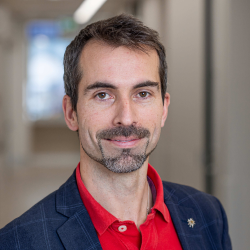
Dame Kate Campbell Professorial Fellow
Professor Tomas Kalincik is Dame Kate Campbell Professorial Fellow, the director of the Neuroimmunology Centre at the Royal Melbourne Hospital and the head of the Clinical Outcomes Research (CORe) Unit at the University of Melbourne.
Together with his research group, CORe, Tomas specialises in analytics of observational data in neurology. He has led a number of international collaborative research initiatives - including studies of comparative effectiveness of MS therapies, management of treatment failure and individual treatment response. He has published more than 250 articles in peer-reviewed journals, including JAMA, Lancet Neurology, Lancet Child and Adolescent Health, and Brain. His main research interests span treatment outcomes in MS and other neuroimmunological diseases, personalised therapy, prognostics (including emerging immunological biomarkers), causal inference, epidemiology and harnessing emerging knowledge about pathogenesis of neuroimmunological conditions to guide individual treatment decisions. He has led development of designs and instruments for analysis of observational data, including operationalised definitions of secondary progressive MS, confirmed disability worsening and progression independent from relapse activity. He worked with the MS International Federation and WHO on scoping the first WHO Essential Medicines List for MS. He is an NHMRC Leadership 2 Fellow, former chair of the Scientific Leadership Group of the global MSBase registry, and collaborates with multiple national MS registries. Tomas co-chairs the scientific committee of the MS Australia Progress in MS Research conference, and convenes teaching courses and preceptorships for neurologists, researchers and nurses at the RMH Neuroimmunology Centre.
Abstract of Lecture:
It is increasingly recognised that progression of disability may occur independently from relapses at any stage of multiple sclerosis and, in fact, of other neuroimmunoloical diseases, such as neuromyelitis optica. Furthermore, progression independent from relapse activity may manifest not only with clinically overt but also with subtle changes of patients' neurological status. This presentation will discuss clinical and biological aspects of progression in multiple sclerosis and other neuroimmunological disorders of the central nervous system.
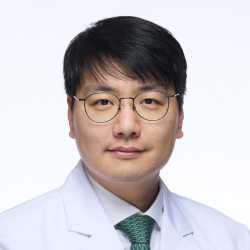
Neurologist & Clinical Staff, Severance Hospital, Yonsei University College of Medicine, Seoul, Korea
Dr. Ki Hoon Kim is a neurologist and Clinical staff at Severance Hospital, Seoul, Korea. He earned his medical degree from Severance Hospital, Yonsei University College of Medicine, where he also completed his neurology residency and clinical fellowship in a neuromuscular and neuroimmunology section. He subsequently served as a fellow and clinical staff member in a neuroimmunology section at the National Cancer Center of Korea.
Dr. Kim’s primary research interests focus on autoimmune inflammatory diseases of the central nervous system, including multiple sclerosis, neuromyelitis optica spectrum disorder, and MOG-IgG-associated disease. His work centers on understanding clinical manifestations, optimizing treatment strategies, and identifying biomarkers to advance patient care.
Abstract of Lecture:
As the global population ages, managing elderly patients with neuromyelitis optica spectrum disorder (NMOSD) has become a critical challenge in real-world clinical practice. Older patients exhibit greater disability, higher burdens of comorbidity, and increased susceptibility to treatment-related complications. Despite these concerns, effective relapse prevention remains essential to avoid irreversible disability accumulation in this vulnerable population.
This lecture will focus on evidence-based treatment strategies for elderly NMOSD. Practical considerations regarding acute treatment, application of long-term immunosuppressive therapy, and risk mitigation strategy will be discussed, including how to balance efficacy with safety. Also, the importance of individualized treatment planning, close monitoring for adverse effects, and thoughtful adjustment of therapy over time will be emphasized.
With this session, attendees will gain insights to support therapeutic decision-making and optimize better outcomes in older patients with NMOSD.
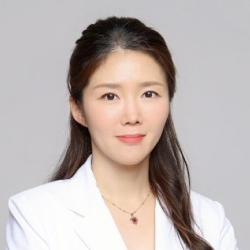
Neurologist, Department of Neurology, National Cancer Center, Goyang, South Korea
Dr. Su-Hyun Kim is a neurologist at the Department of Neurology, National Cancer Center, Goyang, South Korea, where she has worked since 2017, following her role as a visiting doctor in the same department from 2013 to 2016.
She obtained her medical degree in 2004 and completed her neurology residency in 2009 at Gil Medical Center, Gachon University of Medicine and Science, where she also earned a master’s degree. From 2009 to 2013, she undertook fellowships in neuromuscular disorders at Seoul National University Hospital and in neurology at the National Cancer Center. She received her doctorate from Gachon University of Medicine and Science in 2017.
Dr. Kim has received several honors for young investigators, including the Hang-Sul Award and the 5th LG Future Medical Scientist Award in 2013. Her research focuses on multiple sclerosis, neuromyelitis optica spectrum disorder, and chemotherapy-induced peripheral neuropathy as a major neurological complication in cancer patients, and she has published extensively in these fields
Abstract of Lecture:
Biomarkers hold the promise of transforming NMOSD care by improving differential diagnosis, refining disease monitoring, and guiding personalized treatment strategies. Recent research has increasingly focused on blood-based biomarkers that are both accessible and clinically meaningful. Among them, serum glial fibrillary acidic protein (sGFAP) and neurofilament light chain (sNfL) provide complementary insights into NMOSD pathology. sGFAP, reflecting acute astrocytic injury, rises rapidly within one week of attack onset, whereas sNfL, a marker of axonal injury, increases more gradually and correlates with attack severity and recovery potential. A recent multicenter study has further refined optimal sampling windows and proposed z-score–based thresholds to enhance diagnostic accuracy across diverse populations. In addition, complement proteins and cytokines such as IL-6 not only support differential diagnosis but also deepen understanding of disease mechanisms, providing the rationale for the development of targeted therapies, including complement and IL-6 pathway blockade. Despite these advances, key limitations hinder clinical application, including the need for optimal sampling windows, standardized protocols for serial sampling, and the absence of biomarkers robust enough for individual-level decision making. Future directions include establishing standardized frameworks, implementing longitudinal monitoring, and developing composite biomarker approaches to better support personalized care.

University Hospital Basel, Switzerland
Jens Kuhle obtained his MD in Tübingen, Germany and specialised in neurology and neuroimmunology at the University Hospital Basel.
After his PhD in Neuroimmunology at Queen Mary University in London (2012-2014) in the laboratory of Gavin Giovannoni, he returned to Basel as research group leader in the Clinical Neuroimmunology unit in the Department of Clinical Research and Biomedicine, and became Deputy Head of Outpatient Clinic and MS Centre, University Hospital Basel.
Since 2018 he is Associate Professor and Head of Multiple Sclerosis Center and was appointed as Head of the Neuroimmunology Unit in 2021. Since 2025 he is a full professor at the University Hospital and University of Basel.
His research work in the field of translational medicine focuses on the development of fluid biomarkers, e.g. neurofilament light chain (NfL) in MS, and other neurological disease, establishing NfL as the first blood-based biofluid marker validated for use in personalised medicine.
He is the initiator and Principal Investigator of the Swiss MS Cohort (SMSC) that has developed since its foundation in 2012 to one of the largest biobanks and clinical and imaging information resources worldwide with now more than 2000 patients followed longitudinally. The SMSC serves as a platform for biomarker discovery and development, clinical outcome research and pragmatic trailing in MS in national and international research projects.
Jens' research is supported by the Swiss National science foundation, the Swiss MS Society and the International Progressive MS Alliance; he authored more than 450 scientific publications and has been named as 'Highly Cited Researcher' in 2022, 2023 and 2024.
Abstract of Lecture:
Fluid biomarkers are reshaping MS monitoring, with serum neurofilament light chain (NfL) now entering clinical use as a marker of neuroaxonal injury and treatment response. Glial fibrillary acidic protein (GFAP) shows promise as an indicator of disease progression, particularly PIRA. However, fully phenotyping MS from blood remains challenging. Insights from large cohorts such as the Swiss MS Cohort Study (SMSC) have enabled more refined interpretation using reference models and longitudinal tracking. This talk will explore the current status and limitations of sNfL and sGFAP, and discuss how fluid biomarkers may support more personalized care in MS.
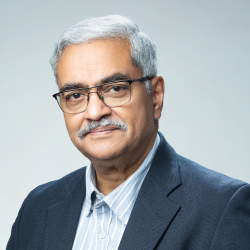
Clinical Director & Senior Consultant Neurologist Neurosciences Centre, Peerless Hospital, Kolkata, INDIA
Dr. Tapas Kumar Banerjee, MD, FRCP (London), FRCP (Edin), FAAN, FIAN is currently the Clinical Director & Senior Consultant Neurologist. Peerless Neurosciences Centre, Kolkata, INDIA. He was Registrar in Neurology, Hurstwood Park Neurological Centre, UK (1989-90), Senior Registrar in Clinical Neurophysiology, Wessex Neurological Centre, UK (1990-92) and Clinical Staff Fellow in Neurology, National Institute of Neurological Disorders and Stroke (NINDS), National Institutes of Health (NIH), Bethesda, USA from 1992 till 94.
His areas of research include multiple sclerosis, stroke, epilepsy and neuroepidemiology. He has one hundred and eleven publications in leading peer-reviewed international journals. He was conferred the “Mother Teresa Ratna 2021” by the Award Committee of All-India Minorities and Weaker Section Council.
Abstract of Lecture:
A large number of disease-modifying therapies (DMTs) do exist now for the treatment of Multiple Sclerosis (MS). But people of low-income countries and uninsured people of high-income nations do not have access to all the DMTs, either due to non-availability or due to non-affordability. The “Multiple Sclerosis International Federation (MSIF)” in collaboration with Cochrane MS group and McMaster GRADE centre aimed to develop recommendations on minimum essential DMTs that should be made available in all low-resource settings. By applying GRADEpro tool, careful review of all published randomized controlled trial data was used to determine the risk-benefit, cost-effectiveness, equity, feasibility, availability and acceptability of each and every DMT. Based upon these parameters, the recommended drugs include interferon beta, glatiramer, dimethyl fumarate, fingolimod, ocrelizumab, rituximab and cladribine. Where none of the above drugs are available, azathioprine or methotrexate may be considered. Incidentally, natalizumab and alemtuzumab are very effective DMTs for relapsing MS and siponimod for progressive MS, but feasibility issues make these drugs less suitable in low resource settings.
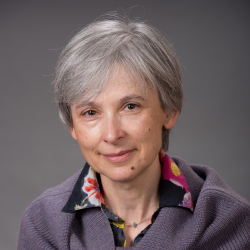
Associate Professor in Neurology - Nuffield Department of Clinical Neurosciences Consultant Neurologist - Oxford University Hospitals NHS Foundation Trust
M Isabel Leite graduated in Medicine from the University of Porto, Portugal, and gained her DPhil at the University of Oxford in 2008. Since then, she has developed her clinical and research career on Autoimmune Neurology, within the Nuffield Department of Clinical Neurosciences. While her clinical expertise, research interest and educational activities are broad and cover autoimmune diseases of central and peripheral nervous system, her main focus is on autoimmune disorders of the neuromuscular junction, in particular myasthenia gravis and Lambert-Eaton myasthenic syndrome, including those associated with malignancy (e.g. thymoma and lung cancer) as well as associated with immunotherapies. She is principal investigator in several research projects and has been awarded research grants, including from Myaware and Muscular Dystrophy UK. She was made Associate Professor of Neurology in 2019.
Abstract of Lecture:
Multiple sclerosis (MS), neuromyelitis optica spectrum disorder (NMOSD), and myelin oligodendrocyte glycoprotein (MOG) antibody-associated disease (MOGAD) are immune-mediated neurological conditions that often affect women of reproductive age. Those conditions may present challenges for pregnancy and peripartum management, including those directly related to the mother or their pregnancy, their newborn and the neurological disease. They are all marked by relapses or attacks, which may occur during pregnancy (rarely) and increase in frequency postpartum.
Standard immunosuppressants and corticosteroids have been used cautiously in women of child-bearing age and especially during pregnancy and postpartum. The recent development and use of novel monoclonal antibodies (MABs) has transformed treatment approaches. Antibodies (abs), including physiological, pathogenic and therapeutic, can cross the placental barrier. MABs may be used during pregnancy depending on the disease, the specific drug, and disease activity and severity. Some treatments including all MABs are compatible with breastfeeding.
Further studies are required to help establish benefits/risks of specific treatments during pregnancy and long-term effects of pregnancy-related disease activity and therapy on newborn. Up-to-date information on this topic should be disseminated and shared with wider neurology, neuroimmunology, obstetric and paediatric communities. Health care professionals are encouraged to shared decision-making with patients.

Staff Specialist Neurologist SVHNS, MS Research Australia Post-Doctorate Fellow, Senior Lecturer UNSW School of Clinical Medicine
Dr. Jennifer Massey is a leading expert in neurology, serving as a Staff Specialist Neurologist at St Vincent’s Hospital in Sydney, with a particular focus on multiple sclerosis (MS) and neuroimmunological diseases.
After graduating with honours from the University of Western Australia in 2009, Dr. Massey completed her neurology specialty training in 2018 and obtained her PhD in 2021, concentrating on immune reconstitution therapies, including autologous hematopoietic stem cell transplantation (AHSCT) for MS. Currently, Dr. Massey leads a translational research program investigating the immunopathogenesis of MS, with an emphasis on the role of viral drivers such as Epstein-Barr virus (EBV). Her innovative work includes extensive laboratory-based research in deep immunophenotyping and the application of advanced cellular therapies like CAR-T cells. As a Senior Lecturer at UNSW's School of Clinical Medicine, she is dedicated to medical education.
Dr. Massey has received grant funding from MS Australia and the NHMRC. She remains actively involved in various clinical trials and research initiatives aimed at improving patient outcomes in MS. She has attended national and international conferences, where she presents her findings on immune reconstitution therapies and the complexities of MS treatment.
Passionate about patient care, Dr. Massey integrates her clinical practice with her research, pushing for innovative solutions to enhance the lives of individuals with MS.
Abstract of Lecture:
This lecture will review the evolving understanding of the immunopathogenesis of MS. Learnings from immunophenotyping of tissues from individuals with MS will be reviewed. This will be discussed in the context of the MS natural history. The lecture will also discuss what response to treatment can tell us about MS immunology. Finally, novel approaches to understanding the disease will be explored.
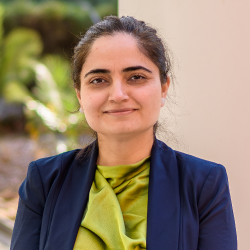
Associate Professor, Department of Neuroscience, Monash University and Neuroimmunology Service at Alfred Health
A/Prof Mastura Monif is a neurologist and neuroimmunologist with a laboratory-based PhD in neuroinflammation. She leads the Neuroimmunology, Neuroinflammation and Neurooncology Laboratory in the Department of Neuroscience at Monash University and the Neuroimmunology Service at Alfred Health. Her clinical expertise includes multiple sclerosis, autoimmune encephalitis, the neuroimmunology of glioblastoma, and CAR T-cell therapy–related neurotoxicity. Her research focuses on developing and validating biomarkers for the diagnosis and prognosis of neuroinflammatory diseases, with the aim of improving diagnosis, management, and overall patient outcomes. She has authored >115 peer reviewed publications. Her work is highly translational, integrating a bed-to-bench-to-bedside approach to bridge clinical care and discovery science.
Abstract of Lecture:
In this lecture, A/Prof Mastura Monif will discuss the importance of translational research in bridging the gap between laboratory science and clinical practice. Drawing on her dual roles as a neurologist and neuroimmunologist, she will demonstrate how combining clinical work within a hospital setting with laboratory-based research can generate meaningful advances in patient care.
Using autoimmune encephalitis (AE) as a key example, A/Prof Monif will outline how the recruitment of patients and collection of clinical samples at the bedside has informed laboratory investigations and, in turn, led to the establishment of the Australian Autoimmune Encephalitis Consortium (AAEC). This national collaborative body is dedicated to advancing AE research in Australia, and its outcomes are already shaping clinical diagnostic pathways and management strategies.
She will also highlight her team’s work on CAR T-cell therapy–related neurotoxicity, a major challenge in delivering this cutting-edge cancer therapy. By integrating clinical observations with laboratory analysis, her research aims to optimise patient management and identify biomarkers that predict or monitor neurotoxicity.
Together, these examples illustrate how translational, bed-to-bench-to-bedside approaches can accelerate discoveries, improve diagnosis and treatment, and ultimately enhance outcomes for patients with complex neuroimmunological conditions.
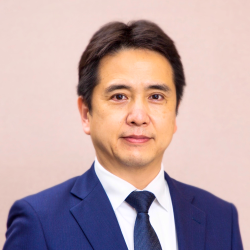
Professor of Neurology at Tohoku Medical and Pharmaceutical University
Ichiro Nakashima graduated in Medicine (M.D.) in 1994 and Internal Medicine (Ph.D.) in 1999 at Tohoku University in Sendai, Japan. Dr. Nakashima holds the position of Professor of Neurology at Tohoku Medical and Pharmaceutical University and is President of the Japanese Society of Neuroimmunology, Board-Certified Member of the Japanese Society of Neurology and the Japanese Society of Internal Medicine as well as a Councilor of the Japanese Society of Neurology, and the Japanese Society of Neuro Therapeutics. Dr. Nakashima’s publications cover neuroimmunological diseases such as multiple sclerosis and neuromyelitis optica, and his major research projects cover areas like significance of oligoclonal IgG bands and roles of B cells in the pathogenesis of multiple sclerosis and neuromyelitis optica. Dr. Nakashima has published more than 320 peer-reviewed articles, and the current h-index is 71.
Abstract of Lecture:
Monitoring treatment efficacy and safety is essential for optimizing the management of multiple sclerosis (MS) and neuromyelitis optica spectrum disorder (NMOSD). Advances in disease-modifying therapies (DMTs), including monoclonal antibodies and oral agents, have improved long-term outcomes, but require tailored strategies for ongoing assessment. Clinical monitoring should integrate relapse frequency, disability progression, and patient-reported outcomes with periodic MRI to detect subclinical disease activity. Biomarkers such as serum neurofilament light chain are emerging tools to complement imaging and clinical evaluation. Safety monitoring must be individualized according to the specific mechanism of action and known adverse event profile of each agent. For example, lymphocyte counts and liver function tests are crucial for oral immunomodulators, while infection surveillance and immunoglobulin levels are important for B cell–depleting therapies. Opportunistic infections, including PML, require heightened vigilance, particularly in high-risk patients. In NMOSD, monitoring focuses on preventing relapses through adherence and early detection of breakthrough disease, while managing therapy-specific risks such as hypogammaglobulinemia or neutropenia. This lecture will provide a practical framework for integrating efficacy and safety monitoring into routine care, highlighting recent evidence, case-based scenarios, and strategies to balance disease control with minimizing adverse effects.
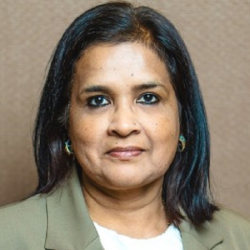
Professor of Neurology Director of Centre for Advanced Neurological Research, Nitte University, Karnataka, India
Dr Lekha Pandit is a professor of Neurology and Director of Centre for Advanced Neurological Research, at Nitte University, Mangalore, India. </span >
Dr Lekha Pandit is the founder/director of the Mangalore demyelinating disease registry (MANNDIR), dedicated to diagnosis and management of multiple sclerosis & related disorders among resource constrained patients in Southern India. Her research interests include the following - development of diagnostic live cell based assays, detection of novel biomarkers and the study of genetic, environmental and microbiome associations for MS and NMOSD in India.</span >
Dr Pandit has been a recipient of the Fulbright-Nehru fellowship for academic and professional excellence, is an awardee of the National Academy of Science, India and has authored over 240 publications in peer reviewed journals.</span >
She is the current secretary of the Pan Asian committee for Treatment and Research in Multiple Sclerosis (PACTRIMS).</span >
Abstract of Lecture:
Live cell-based assays (LCBA’s), though highly sensitive and specific, are limited in their availability in resource poor settings, for the diagnosis of MOGAD and AQP4-IgG associated NMOSD. Commercially available, imported fixed cell-based assays (FCBA’s) are available in several private laboratories in India. Infrastructure necessary and the technical expertise required have limited the availability of LCBA within the country. At the Mangalore demyelinating disease registry (MANDDIR). The author and her group have developed LCBA assays for detection of both MOG-IgG and AQP4-IgG and compared their efficacy in diagnosis. This talk will refer to these findings and the impact on specific diagnosis and early treatment of MOGAD and NMOSD within this region.
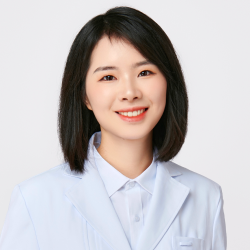
Assistant Investigator and Master's Supervisor, Department of Neurology, West China Hospital, Sichuan University
Dr. Ziyan Shi serves in the Department of Neurology at West China Hospital, Sichuan University as an Assistant Investigator and Master's Supervisor. Her primary research focuses on demyelinating disorders of the central nervous system, including Neuromyelitis Optica Spectrum Disorders (NMOSD), Multiple Sclerosis (MS), and MOG Antibody-Associated Disease (MOGAD). She has published over 50 SCI papers, including 17 as first/corresponding author in journals such as Journal of Neuroinflammation and Neurology: Neuroimmunology & Neuroinflammation (N²).
Abstract of Lecture:
Myelin oligodendrocyte glycoprotein antibody-associated disease (MOGAD) is an autoantibody-mediated CNS inflammatory demyelinating disease. This presentation will discuss the clinical manifestations and key points of diagnostic assessment of MOGAD in China, drawing from multi-center clinical data and research experience within our population. We will share insights into the disease phenotypes, serological and radiological features observed in Chinese patients, and highlight crucial differential diagnostic points from neuromyelitis optica spectrum disorder (NMOSD) and multiple sclerosis (MS). Furthermore, we will explore the strategies employed in Chinese clinical practice for assessing disease relapse and treatment response. The aim is to provide diagnostic and management perspectives from China for the Asia-Pacific region, ultimately contributing to the early, accurate diagnosis and standardized management of MOGAD.
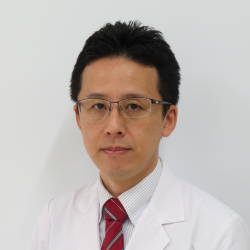
Assistant Professor, Department of Neurology, Kyushu University Hospital, Fukuoka, Japan
Koji Shinoda is an Assistant Professor at Kyushu University Hospital. He received his M.D. from the School of Medicine at Kyushu University in 2007 and completed the neurology residency program at Kyushu University Hospital and its affiliated hospitals. He obtained a Ph.D. from the Graduate School of Medical Sciences at Kyushu University in 2015, and then had post-doctoral researcher training at Kyushu University from 2015 to 2018 and at the University of Pennsylvania from 2018 to 2021.
His research interests have been in clinical and experimental neuroimmunology, focusing on human immunology and MRI studies of multiple sclerosis, neuromyelitis optica spectrum disorders, and other central nervous system autoimmunity.
He is the recipient of several awards, including the MSJ-PACTRIMS Investigator awards from the Pan-Asian Committee for Treatment and Research in Multiple Sclerosis, the Young Neuroimmunologist Award from the Japanese Society of Neuroimmunology, and the Young Investigator Award from the Japanese Society of Internal Medicine.
Abstract of Lecture:
Multiple sclerosis (MS) is a chronic autoimmune disorder of the central nervous system and one of the leading causes of disability in young adults worldwide. The diagnosis of MS can be challenging, as it presents with heterogeneous clinical features that can be mimicked by other diseases, particularly in Asia where differential diagnosis such as neuromyelitis optica spectrum disorders and myelin oligodendrocyte glycoprotein antibody-associated disease are relatively prevalent. Over the past decade, the advances in magnetic resonance imaging (MRI) techniques have enabled the identification of novel MS-specific biomarkers, including central vein sign (CVS), paramagnetic rim lesion (PRL), and cortical lesions (CL). Although each reflecting distinct aspects of pathophysiology, these are specific to MS, and thus it is announced that both CVS and PRL will be incorporated into the 2024 revised McDonald diagnostic criteria for MS.
In this presentation, I will review the latest evidences on these emerging biomarkers and present our data from the Japanese cohort, highlighting their diagnostic performance and clinical utility. I will discuss how these biomarkers may refine the diagnosis of MS in Asian clinical practice, enabling earlier and more accurate diagnosis and ultimately better patient outcomes.
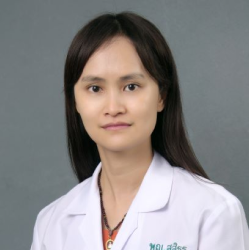
Senior Consultant Neurologist at Bumrungrad International Hospital, Bangkok, Thailand Head of the Siriraj Neuroimmunology Center (SiNIC), Siriraj Hospital President of the Thai MS Society
Dr. Sasitorn Siritho is a senior consultant neurologist at Bumrungrad International Hospital, Bangkok, Thailand, and also practices at the Multiple Sclerosis and Related Disorders Clinic, Siriraj Hospital, Mahidol University, Bangkok. She currently serves as the Head of the Siriraj Neuroimmunology Center (SiNIC) at Siriraj Hospital and is the President of the Thai MS Society.
Dr. Siritho earned her medical degree from the Faculty of Medicine, Siriraj Hospital, Mahidol University, in 1995. She completed a clinical and research fellowship in stroke at the Austin and Rehabilitation Centre, University of Melbourne, Australia, from 2001 to 2003. In 2005, she was a visiting fellow at the Alzheimer’s Center, University of California, Los Angeles (UCLA) Medical Center, USA. She further specialized in neuroimmunology, completing a clinical fellowship in multiple sclerosis at The Ottawa Hospital, Ontario, Canada, from 2007 to 2008.
"Her clinical and research interests focus on neuroimmunological disorders, including multiple sclerosis, neuromyelitis optica spectrum disorder, and related conditions. She has served as a peer reviewer for over 100 scientific manuscripts and has published more than 80 articles in leading national and international journals."
Abstract of Lecture:
The 2024 revision of the McDonald criteria for multiple sclerosis (MS) aims to facilitate earlier diagnosis by incorporating updated imaging markers and fluid biomarkers. While these criteria have been validated largely in Western cohorts, their application in Asian populations presents unique challenges due to differing disease epidemiology and phenotypic overlap with neuromyelitis optica spectrum disorder (NMOSD) and myelin oligodendrocyte glycoprotein antibody-associated disease (MOGAD). The prevalence of NMOSD and MOGAD is significantly higher in Asia compared to Western regions, leading to a greater risk of diagnostic errors if MS criteria are applied without careful exclusion of antibody-mediated disorders. This session will review the potential benefits of the 2024 McDonald criteria in enabling earlier MS diagnosis in Asia, alongside the pitfalls of premature or inaccurate classification. We will discuss regional differences in clinical presentation, MRI patterns, and biomarker availability, as well as the implications of misdiagnosis on long-term management, treatment costs, and patient outcomes. Emphasis will be placed on integrating AQP4-IgG and MOG-IgG testing, recognizing atypical features, and establishing context-specific diagnostic pathways to optimize accuracy. The session aims to foster discussion on whether “earlier diagnosis” with the new McDonald criteria in Asia truly translates into better care or risks leading to “earlier misdiagnosis.”
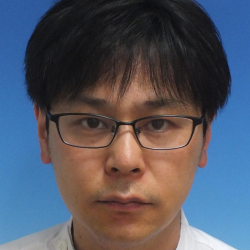
Assistant Professor, Department of Pathology, Tohoku University Hospital, Sendai Ward Director, Department of Neurology, Tohoku University Hospital, Sendai
Dr. Takai is an assistant professor in the Department of Pathology at Tohoku University Hospital and also serves as ward director of the Department of Neurology. He is interested in the pathogenesis of central inflammatory demyelinating diseases and, as a specialist in neuroimmunology and neuropathology, has conducted clinical and neurohistological research on diseases such as multiple sclerosis, neuromyelitis optica, and MOGAD, publishing more than 50 papers to date.
Abstract of Lecture:
Myelin oligodendrocyte glycoprotein antibody-associated disease (MOGAD) is a recently established central inflammatory demyelinating disease. The diagnostic criteria proposed by an international panel in 2023 require the detection of conformation–sensitive MOG antibodies (MOG-Ab) for diagnosis, making its measurement the most important diagnostic biomarker. Basically, serum testing is recommended, but there are 3-23% of cases where MOG-Ab are only found in CSF. Furthermore, the presence of selective intrathecal MOG-Ab is known to be associated with clinical phenotypes of ADEM and cortical encephalitis, as well as with disease severity. In such cases, demyelination is observed in the areas in contact with the CSF, suggesting its direct involvement in the pathogenesis. Recent reports have confirmed that immunoglobulins other than IgG (MOG-IgA/IgM) can be detected in some patients with inflammatory demyelinating diseases, suggesting that further consideration is needed when expanding the disease concept of MOGAD. Although other biomarkers besides antibodies have not yet been fully evaluated, serum and CSF analyses have reported differences in complement activity characteristics associated with the severity and prognosis of MOGAD, and comparative results have been obtained from histopathological examinations.
This lecture will provide an overview of the latest findings on MOGAD biomarkers, along with their neuropathological background.
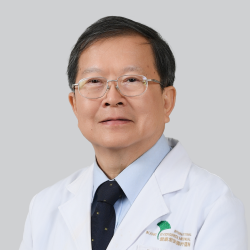
Consultant and Former Superintendent, Taipei Beito Health Hospital Professor of Neurology, Taipei Veterans General Hospital National Yang-Ming Jiao-Tung University, Taipei, Taiwan
Professor Ching-Piao Tsai is a distinguished neurologist, educator, and leader in the field of clinical neuroscience. He currently serves as Consultant and former Superintendent of the Taipei Beito Health Hospital, and as Professor of Neurology at Taipei Veterans General Hospital and National Yang-Ming Jiao-Tung University. In addition, he holds a Clinical Professorship at the National Defense Medical School. Previously, he was Section Chief of the Neurological Institute at Taipei Veterans General Hospital.
Prof. Tsai earned his MD from China Medical University, Taichung, Taiwan, and completed his internship and residency before pursuing advanced research training abroad. His international academic journey included fellowships at the University of Sydney, Australia—where he obtained his Master of Medicine degree—the University of Virginia, USA, and Utano National Hospital in Kyoto, Japan.
His primary research interests encompass demyelinating disorders and neuroimmunological diseases. In recognition of his scholarly excellence, he has been awarded the Outstanding Researcher Award of Taiwan’s National Science Council on four occasions. To date, he has contributed over 80 peer-reviewed publications to the global scientific community. He is the former Editor-in-Chief of Acta Neurologica Taiwanica and has served on the editorial and review boards of several prestigious journals, including the Journal of Pediatric Neurology, Multiple Sclerosis and Related Disorders, and the Journal of Neurology, Neurosurgery & Psychiatry.
Prof. Tsai has held prominent leadership positions in professional organizations, including President of the Asian and Oceanian Association of Neurology and the Taiwan Neurological Society, where he also served as Chief Supervisor and National Delegate. He served on the Boards of Directors for the International Alliance of Motor Neuron Disease and the Orphan Drug Committee of Taiwan’s Department of Health, continuing to advance neurological science and patient care globally.
Abstract of Lecture:
Curiosity serves as the core driver of a clinical academic career focused on MS and NMOSD. It is critical to prioritize unresolved questions in the pathogenesis of these conditions—such as triggers of immune dysregulation and interactions between genetic and environmental factors—while addressing unmet clinical needs, including treatment resistance and mechanisms of disease progression.
Researchers must deepen their expertise in the biology and clinical phenotypes of MS and NMOSD, mastering their immunological, neurobiological, and genetic features. By translating curiosity into hypothesis-driven research, they can bridge bench and bedside, advancing scientific knowledge while enhancing patient care.
Mentorship acts as a key accelerant: learning from senior clinician-scientists helps navigate challenges, while mentoring early-career researchers strengthens one’s own insights and builds an academic legacy. Early, purposeful dissemination of work—through publications and conference presentations—invites valuable critique that refines research direction. Active engagement in global MS and NMOSD networks connects researchers to diverse patient cohorts and innovative ideas.</span >

MBBS (India) FRCP (Ireland), Fellowship in Neurology (Malaysia), AM (Academy of Medicine)
Currently holds the position of Head of Department of Department of Neurology, Tunku Abdul Rahman Neuroscience Institute (IKTAR), Kuala Lumpur Hospital, Malaysia. She is the Clinical Lead of the Neuroimmunology Service, Department of Neurology, IKTAR, Kuala Lumpur Hospital, Malaysia. She is the current Vice President, of the Neuroimmunology Council, Malaysian Society of Neurosciences, Malaysia and Ex-Vice President of the Malaysian Society of Neurosciences, Malaysia. She is also the Scientific Co-chair of the recently published E-book Consensus Statement on the Management of Multiple sclerosis and the Chair of the Consensus Statement on the Management of NMOSD in Malaysia.
She is the Chair and Founder of The Southeast Asian Therapeutic Plasma Exchange Consortium, SEATPEC a member of the International Society for Apheresis (ISFA) and Co-Chair of the Multiple Sclerosis International Federation Off Label Treatment Panel (MOLT).
She is the Current Convenor and Examiner for the MRCP Ireland Post graduate Examinations at Kuala Lumpur Hospital, Malaysia, Fellow of the Royal College of Physicians of Ireland and a Member of the Membership Committee, World Federation of Neurology.
She is on the Board of Directors of the Neuroscience Foundation of Malaysia and a Member of the Academy of Medicine of Malaysia as well as Member of the National Specialist Registration Committee, Malaysia. She has been involved independently and in collaboration with international organizations like MSIF, Cochrane: KnowMS, IWGA, MEMPs, MOLT in international Advocacy for Access to treatment for CNS inflammatory diseases nationally and in her country of origin. Nationally she is part of the My MS Network and My NMOSD Network in Malaysia.
Research:
Published more than 150 original articles and abstracts, 5 local books including the latest the Consensus Statement on Management of Multiple Sclerosis and upcoming Consensus statement on Management of NMOSD in final preparation”.
Abstract of Lecture:
Öff Label disease modifying treatments (DMT’s) is a general term used to describe DMT’s that have regulatory approval for a wide variety of diseases but are used to treat MS. 1,2,3 Usually this occurs when MS-indicated (‘on-label’) treatment options are limited due to cost, availability and accessibility. 1,2,3 The recent inclusion of Rituximab in the WHO Essential medicine’s list in July 2023 is a significant milestone that has provided the opportunity for patients with MS (pwMS) globally to access high efficacy treatments which otherwise would have been difficult to obtain. 1,2,3
In order to be able to ensure the best possible health outcomes, it is important to explore some the general principles and ethical guidance when prescribing off label DMT’s such as rituximab to pwMS and the .4,5 This talk will delve into such principles of ethical use of off label treatments, indications for off label rituximab based on work from the MSIF off label treatment panel in MS and share a number of case vignettes to illustrate these points.
References
1.Saylor D, Rijke N, McDonell J, et al. Recommendations for essential medicines for multiple sclerosis in low-resource settings. Multiple Sclerosis Journal. 2025;31(4):464-473. doi:10.1177/13524585241308134</a >
S Viswanathan, L Vijayasingham, J Laurson-Doube… - Multiple sclerosis and related disorders, 2024
BI Yamout, S Viswanathan, J Laurson-Doube, D Sokhi - Multiple Sclerosis Journal, 2024
E Chew, DL Rotstein, S Viswanathan - Multiple Sclerosis and Related Disorders, 2025
5.Laurson-Doube J, Rijke N, Helme A, et al. Ethical use of off-label disease-modifying therapies for multiple sclerosis. Multiple Sclerosis Journal. 2021;27(9):1403-1410. doi:10.1177/13524585211030207</a >

Research Fellow and Senior Biostatistician in the Department of Neuroscience at Monash University Lead Statistician for the MSBase and MGBase international registries
Dr Chao Zhu is a Research Fellow and Senior Biostatistician in the Department of Neuroscience at Monash University and Lead Statistician for the MSBase and MGBase international registries. He has made significant contributions to both statistical methodology and clinical research. He solved a long-standing convergence problem in log-binomial models and developed an R package that has been downloaded over 11,000 times. In clinical research, he applies advanced statistical and machine learning methods to multiple sclerosis (MS) and neuroimmunology studies.
His research focuses on treatment strategy evaluation, progression independent of relapse activity (PIRA), digital biomarker development, and prediction modelling. He has published more than 30 peer-reviewed papers in journals such as JAMA Neurology, JNNP, Neurology, and Brain, with several studies informing international clinical guidelines and policy documents.
Dr Zhu has been awarded a $500k Trish MS Research Foundation Postdoctoral Fellowship and a $225k MS Australia Postdoctoral Fellowship, and leads international collaborations under the BigMS framework and with industry partners.
Abstract of Lecture:
Progression independent of relapse activity (PIRA) is disability worsening that occurs without a preceding relapse. In multiple sclerosis (MS), PIRA has emerged as a key contributor to long-term disability, often signalling progression that continues even when relapse activity is controlled. Similar patterns have been observed in other central nervous system disorders, including neuromyelitis optica spectrum disorder (NMOSD), although disability accumulation without relapses is very uncommon in this condition.
Our recent MSBase study followed patients after their first PIRA event and separated them into two groups: persistent PIRA, where disability continued to worsen during all available follow-up, and non-persistent PIRA, where disability later improved. Persistent PIRA was strongly linked to a higher risk of reaching EDSS 6 and converting to secondary progressive MS. Non-persistent PIRA was more likely in younger patients, those with lower baseline EDSS, and those receiving high-efficacy therapy at the time of the event.
These findings emphasise the importance of detecting disability progression independent of relapses and acting early to limit its impact. They also suggest that the concept of PIRA could be relevant to other neuroinflammatory diseases beyond MS.

Associate Professor of Neurology
at Humanitas University in Milan
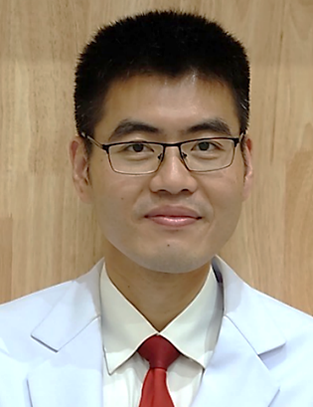
Head of the Neuroimmunology Unit, Department of Neurology, Neurological Institute of Thailand
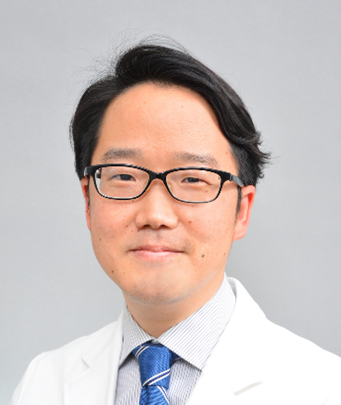
Project Associate Professor of Neurology
at Kobe University Hospital
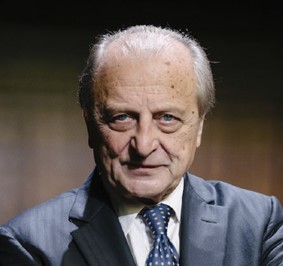
Honorary Professor Vita Salute San Raffaele University (Milan)
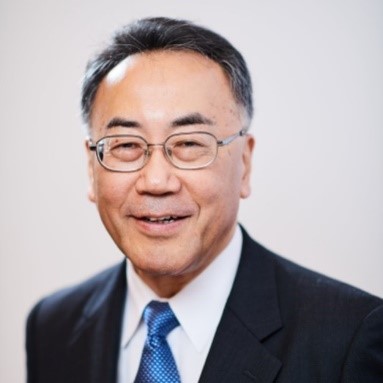
Professor, Department of Multiple Sclerosis Therapeutics, Fukushima Medical University School of Medicine, Fukushima, Japan
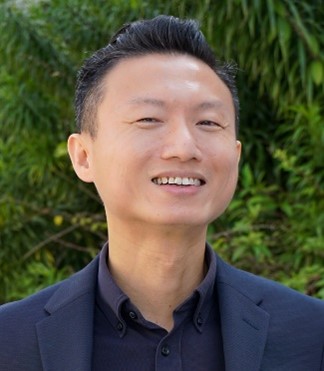
Assistant Professor of Biomedical Informatics, Lee Kong Chian School of Medicine, School of Biological Sciences
.png)
Professor of Neurology
Heinrich Heine University Düsseldorf, Germany
Consultant Neurologist, GOSH
Hon Ass Professor Institute of Child Health, University College London

Neurologist, Assistant Professor,
National Cancer Center
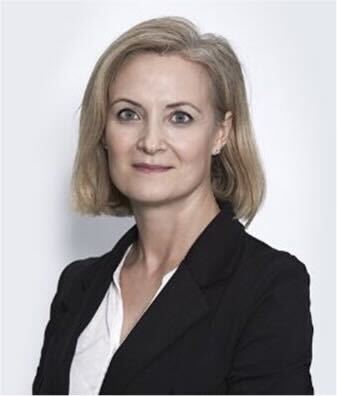
Associate Professor of Neurology
University Vita-Salute San Raffaele, Milan
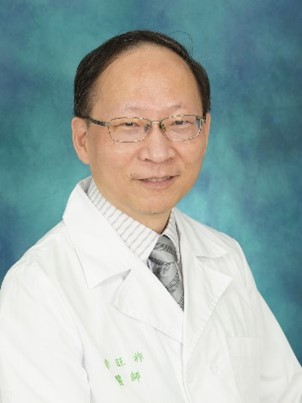
Superintendent,
National Taiwan University Children’s Hospital, Taipei, Taiwan
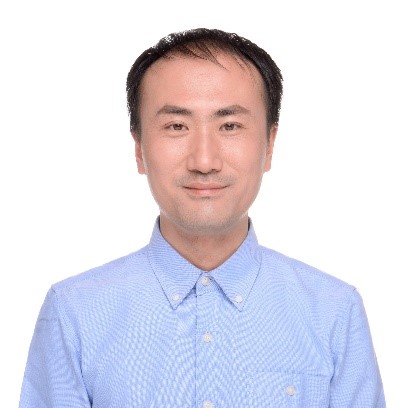
Director of Department of Radiology,
Beijing Tiantan Hospital, Capital Medical University
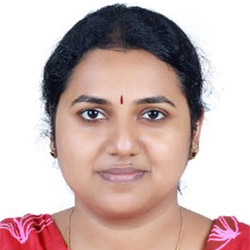
Additional Professor, Department of Neurology,
Sree Chitra Tirunal Institute for Medical Sciences and Technology
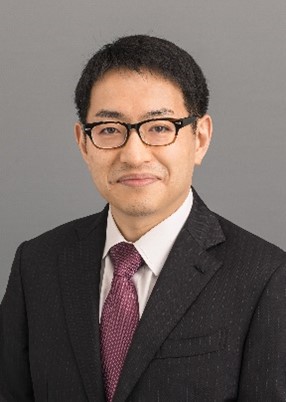
Professor and Chair of the Department of Neurology,
Keio University School of Medicine
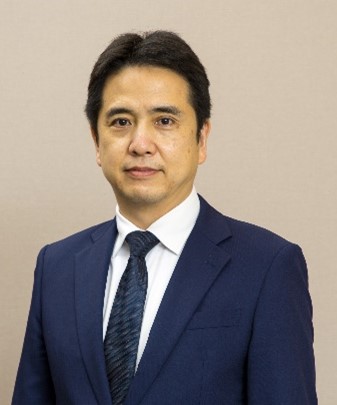
Professor of Neurology at Tohoku Medical and Pharmaceutical University
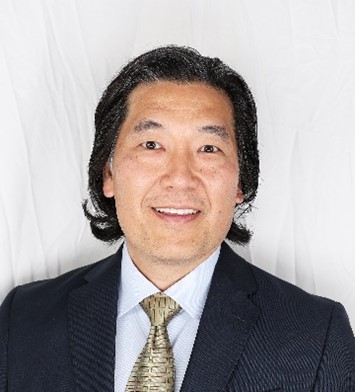
Professor of Neurology
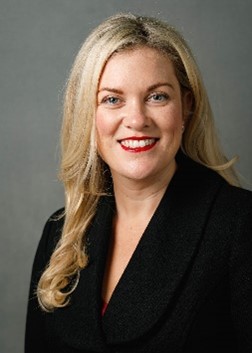
Neurology and Stroke Nurse Practitioner, Royal Brisbane and Women’s Hospital
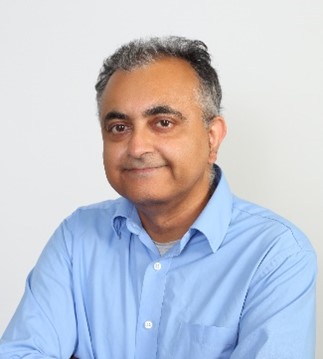
Consultant Neurologist St George’s University Hospitals NHS Foundation Trust
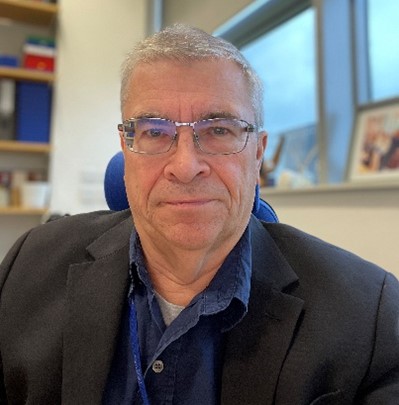
Professor of Cellular Neurobiology, Faculty of Medicine, Division of Brain Sciences,
Imperial College London, UK
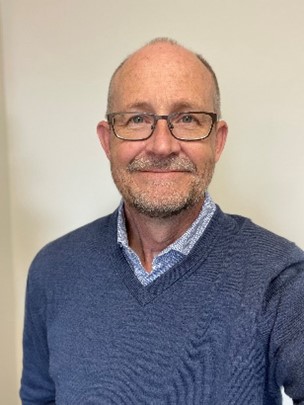
Head of Department of Immunology and Cofounder of the Neuroimmunology Service at Concord Hospital in Sydney

Senior Consultant, Department of Neuro Ophthalmology, Singapore National Eye Centre(SNEC)
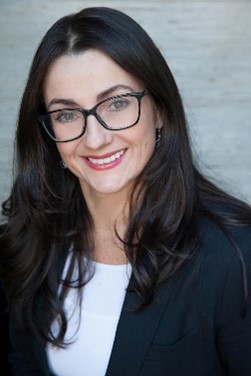
Director of the Multiple Sclerosis and Neuroimmunology Unit and Neuro-ophthalmology Service, Alfred Health, Melbourne
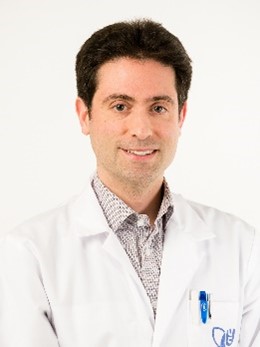
Associate Chief of Neurology Department, Cliniques Universitaires Saint-Luc,
UCLouvain University, Brussels, Belgium
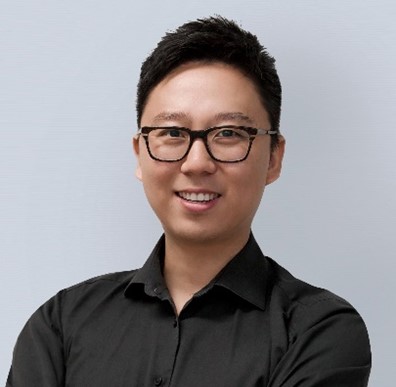
MS Australia Fellow, Senior Research Fellow, University of Sydney
You can still visit the wellbeing booth in the virtual exhibition to view some fantastic video content;
With this short on-demand video tutorial, find out how you can dress up your typical supermarket flowers using foliage from your garden!
A step by step tutorial of how to bake a Manchester Tart, with 2019 semi-finalist of the Great British Bake Off and finalist of the Great Christmas Bake Off 2020, Rosie Brandreth-Poynter.
9 different yoga sessions brought to you by Olivia Haskey from "Yogacrohnie". Expect energising morning sessions, desk Yoga, meditation and breathwork classes, and calm resting evening sessions.
T +44 (0)1452 726704
E exhibition@bsava.com
T +44 (0)1452 726720
E congress@bsava.com
T +44 (0)1452 726720
E congress@bsava.com
Kazuo Fujihara, M.D. is Professor, Department of Multiple Sclerosis Therapeutics, Fukushima Medical University School of Medicine, and Director, Multiple Sclerosis & Neuromyelitis Optica Center, Southern TOHOKU Research Institute for Neuroscience (STRINS), Koriyama, Japan. Dr. Fujihara is a neurologist and has mainly worked in the field of multiple sclerosis (MS), neuromyelitis optica spectrum disorders (NMOSD), MOG antibody-associated disease (MOGAD) and related neuroimmunological disorders. He is a member of the International Panel on Diagnosis of MS (the 2010 and 2017 revisions to the McDonald Criteria), the International Panel on NMO Diagnosis (the 2015 International Consensus Diagnostic Criteria and the 2025 revisions), the International Panel on Diagnosis of MOGAD (2020~2023) and the International Advisory Committee on Clinical Trials in MS (2022~2025). Since 2013, he has served on the Executive Committee, International Medical and Scientific Board of The Multiple Sclerosis International Federation (MSIF), and the Board of European Charcot Foundation (ECF). He is an inaugural member and President (2018~) of Pan-Asian Committee for Treatment and Research in Multiple Sclerosis (PACTRIMS), Immediate Past President of Japanese Society for Neuroimmunology (JSNI), and Honorary Member of The Association of Sri Lankan Neurologists, Indian Academy of Neurology, Hong Kong Society of Multiple Sclerosis, and Brazilian Committee for Treatment and Research in Multiple Sclerosis (BCTRIMS).
Abstract of Lecture:
Multiple sclerosis (MS) may cause a variety of symptoms and functional disabilities, such as weakness, spasticity, ataxia, tremor, bladder and bowel disturbances, sexual dysfunction, fatigue, cognitive and affective disorders, and they impair activity of daily living and reduce quality of life more severely in the progressive phase of the disease. Since disease modifying therapies of progressive MS are still limited in number and their efficacy is insufficient, symptomatic therapy as well as rehabilitation remains important in the management of the patients. In this presentation, an overview of current symptomatic therapies in progressive MS will be provided and the challenges will be discussed.
Professor Hartung is Professor of Neurology at Heinrich-Heine-University Düsseldorf; Honorary Professor, Brain and Mind Center, University of Sydney, Australia, Visiting Professor at Medical University Vienna, Austria and Palacky University Olomouc, Czech Republic. He holds an honorary doctorate from Palacky University Olomouc, Czech Republic.
Professor Hartung is a member of the German Neurological Society DGN, The Austrian Society of Neurology ÖGN, a Fellow of the American Academy of Neurology, Corresponding Fellow of the American Neurological Association, Fellow and General Assembly member of the European Academy of Neurology, Honorary Member of the All Russian Neurological Society, Honorary Member of ECTRIMS, Honorary Member of the French Neurological Society, Honorary Member of the Polish Neurological Society, Member of the Association of British Neurologists and a Fellow of the Royal College of Physicians (London).
Abstract of Lecture:
While a broad range of disease modifying treatments are available for relapsing forms of MS, there is a paucity of drugs effective in progressive MS. Only 2 drugs have been approved so far: Siponimod for active SPMS and ocrelizumab for PPMS. Their effect size is moderate and hence there is a pressing need to develop new treatments. New hope has been generated by the outcomes of the phase 3 trial of the BTK inhibitor tolebrutinib.
I will discuss various strategies based on current concepts of the pathomechanisms underlying progression in MS.
I will also discuss the recent attempts to redefine progression (RAW vs PIRA) and how that may impact our treatment algorithms.
In practical terms early detection of progression along the course of MS is of paramount importance. Management requires an integrated multidisciplinary approach with a combination of DMTs, symptomatic treatments, physiotherapy, and rehabilitation.
Dr. Martina Absinta is a neurologist with an international PhD in Molecular Medicine. She is currently leading the Translational Neuropathology Unit at IRCCS San Raffaele Scientific Institute in Milan. She dedicated her work to ultra-high field 7T MRI–human neuropathological correlations in multiple sclerosis, and related identification of novel imaging biomarkers of chronic inflammation (with special focus on microglia-mediated and leptomeningeal inflammation). In the last few years, her work highlighted the clinical relevance of chronic inflammation and chronic active lesions in driving progression in multiple sclerosis and prompted for the planning of novel-designed MRI-based clinical trials aimed at treating such perilesional chronic inflammation. To better understand the immunological mechanism operating at the chronic active lesion edge and new therapeutic targets, she recently built a cellular blueprint of multiple sclerosis lesions using single-nucleus RNA sequencing and identified C1q as critical mediator of microglia activation. Her scientific work has been published in high impact scientific journals, including Nature, Nature Reviews Neurology, JCI, eLife, and JAMA Neurology.
Abstract of Lecture 1:
The pathological mechanisms driving clinical progression in multiple sclerosis (MS) remain incompletely understood and are therefore not fully addressed by current therapies. Recent studies have emphasized the significance of compartmentalized smoldering inflammation, particularly in chronic active or smoldering lesions, as a key factor in persistent clinical progression.
Given that MRI-neuropathological correlations are essential for advancing our understanding of this disease and developing personalized medicine approaches, this presentation will explore imaging techniques and provide a detailed correlative analysis of the neuropathology of MS lesion evolution, including chronic active lesions, utilizing multiplex immunostaining, single-cell analysis, and spatial transcriptomics. Special emphasis will be placed on the different microglia phenotypes present within chronic active/smoldering lesions. Additionally, recent advancements in imaging techniques for repair and remyelination will also be discussed.
Abstract of Lecture 2:
In this talk, we will explore the latest advancements in biomarkers for multiple sclerosis (MS), focusing on both imaging and molecular markers. As our understanding of MS deepens, the role of biomarkers in diagnosing, monitoring, and predicting disease progression has become increasingly vital. We will delve into innovative imaging techniques that enhance the detection and characterization of MS lesions, providing more precise insights into disease activity and progression. Special emphasis will be placed on the detection of chronic active/smoldering lesions, which are now recognized as key contributors to disease progression in MS, using both MRI and/or PET approaches.
A significant portion of the discussion will center on fluid biomarkers, especially neurofilament light chain (NfL) and glial fibrillary acidic protein (GFAP) levels, which have emerged as promising biomarkers for MS. Overall, this presentation will underscore the importance of combining imaging and molecular biomarkers to advance our understanding of MS and improve patient care. By leveraging these tools, we can move closer to a future where MS management is more predictive, personalized, and effective.
Dr. Norio Chihara is a Project Associate Professor of Neurology at Kobe University Hospital. He received his medical degree from Kobe University and completed a clinical fellowship in neurology at Toranomon Hospital and National Center Hospital, NCNP. He joined Prof. Yamamura's laboratory from 2009 to 2012, where he found plasmablasts as autoantibody-producing B cells in patients with neuromyelitis optica spectrum disorder (NMOSD). After receiving his Ph.D. from Kobe University, he completed his postdoctoral training at Brigham and Women's Hospital, Harvard Medical School, under the mentorship of Prof. Vijay Kuchroo from 2013 to 2016.
He is currently utilizing a systems biology approach to understand the co-inhibitory molecular circuits that are dysregulated in multiple sclerosis (MS) and other neurological diseases. He has over 100 publications. The main focus of his research is to elucidate the immune pathogenesis of MS, NMOSD and neurodegenerative diseases in order to develop a novel therapeutic strategy for these neurological disorders.
Abstract of Lecture:
Neuromyelitis optica spectrum disorder (NMOSD) is a relapsing inflammatory disease that often mimics multiple sclerosis (MS) due to its clinical presentation of optic neuritis and myelitis. Two decades of studies have shown that autoantibodies to the water channel protein aquaporin 4 (AQP4) on astrocytes are detected in a core group of patients. These autoantibodies are central to the inflammatory pathology of the disease, which involves proinflammatory cytokines, chemokines, and various immune cells. Anti-AQP4 antibody-positive NMOSD is fundamentally different from MS, particularly in its responsiveness to therapy and the neuropathology associated with astrocyte destruction. Advances in understanding the immunological mechanisms of NMOSD have led to the identification of therapeutic targets, such as the complement pathway and interleukin-6 (IL-6) receptor signaling. Randomized controlled trials have demonstrated the exceptional efficacy of therapies targeting complement C5, IL-6 receptors, and B cells in preventing relapses in patients with anti-AQP4 antibodies, although no such effects were found in anti-AQP4 antibody negative patients. These results suggest that anti-AQP4 antibody is a biomarker that predicts the efficacy of therapies and may guide the development of "personalized medicine" approaches tailored to individual patients.
Dr. Richard Reynolds’ research focuses on the pathogenetic mechanisms underlying grey matter pathology in multiple sclerosis, in particular the link between inflammation and neurodegeneration. Our laboratories house the UK MS Tissue Bank that represents a worldwide resource for MS research. Our studies also use novel animal models of cortical pathology, employing the chronic expression of cytokines and chemokines in the meningeal space, alongside a detailed molecular analysis of the human tissues. We recently described a role for TNF signalling in activating necroptosis in cortical neurons in MS and have extended this to the hippocampus in Alzheimer brains.
Abstract of Lecture 1:
Neuropathological studies of cortical pathology in progressive MS have identified a relationship between leptomeningeal immune cell infiltrates in the deeper cortical sulci and subpial demyelination of the grey matter. An increasing degree and lymphoid-like organisation of meningeal infiltrates and extent of cortical demyelination are linked with increasing disease severity. Increased meningeal inflammation also correlates with increased loss of cortical neurons, independent of the presence of subpial demyelination. Analysis of diagnostic and post-mortem CSF demonstrated a link between a proinflammatory CSF milieu (levels of TNF, IFN-gamma and CXCL13), and the presence of meningeal inflammation and cortical demyelination. To test the hypothesis that proinflammatory molecules diffusing from the meninges into the underlying cortex can produce MS-like pathology, we induced chronic meningeal expression of combinations of TNF, LT-alpha and IFN-gamma in the rat subarachnoid space. This gave rise to rapid immune cell infiltration into the meninges and the development of lymphoid-like tissues, followed by accumulating sub-pial demyelination and neuronal loss. Subpial demyelination was dependent on the presence of a humoral anti-MOG immune response, whereas neurodegeneration was independent, as in the MS brain. These animal studies have demonstrated that chronic pro-inflammatory cytokine expression in the meninges alone can give rise to underlying cortical pathology.
Abstract of Lecture 2:
The pathology of progressive MS is classically characterised by multiple foci of perivenular inflammation in the white matter (WM) accompanied by primary demyelination. Axon transection can be observed in active inflammatory lesions, but there is relative sparing of axons in the majority. Demyelination is also present in the cerebral cortical and deep grey matter (GM), often more extensive than in the WM. Lymphocytes are only present in small numbers in progressive MS brains, predominantly restricted to the WM perivascular spaces. T and B-cells are rare in the GM parenchyma and perivascular spaces, although substantial numbers are found in the overlying leptomeninges of a significant proportion of cases, often in tertiary lymphoid-like aggregates. Many diffuse pathological changes are present in the normal appearing WM and GM, including axon damage/loss, microglial activation, node of Ranvier abnormalities and neuronal and synaptic loss. Quantitative analysis of pathological features and clinical outcomes in a large post-mortem cohort indicates that, whereas the degree of demyelination correlates only weakly with measures of progression, neuronal loss in the thalamus and pons are strongly correlated with disease duration and time to wheelchair use, suggesting that neurodegeneration is driving the accumulation of disability in progressive MS.
Dr Cheryl Hemingway is a Consultant Paediatric Neurologist at Great Ormond Street Hospital (GOSH) and has been there for over 20 years.
She has worked and trained in paediatric neurology at Red Cross Children’s Hospital, South Africa; Johns Hopkins, USA and in Oxford and London in the UK, and has been a full time Neurology Consultant at Great Ormond Street Children’s Hospital (GOSH) from 2005. Her PhD from Imperial College, London used RNA array technology to explore the host immune response to brain inflammation, and she has used the expertise gained from this to provide specialised clinical care to children with rare acquired neuroinflammatory disorders.
She currently leads the GOSH Neuroinflammatory Disease service, the largest clinic in the UK for children with Multiple Sclerosis and other rare demyelinating and neuroinflammatory disorders, as well as Lead for the Inherited White Matter Disorders Service. She holds specialist clinics with rheumatology caring for patients with both brain and systemic inflammation, such as those with neurosarcoid, neuroSLE and Aicardi Goutieres Syndrome. She is also research active, with a number of recent important publications and has been PI and Co-PI at GOSH for both AGS and MS trials. She is Chair of the International Pediatric MS Study Group and sits on a number of advisory panels for MS and MOGAD trial design.
Abstract of Lecture 1:
Over recent years there have been significant advances in our understanding of the pathogenesis of Paediatric Multiple Sclerosis (MS) together with a growing recognition of the diverse range of disorders which can present as non-MS white matter lesions involving the brain, eye and spine in children and young people. Some of these, in particular the antibody (Ab) driven disorders such as Myelin Oligodendrocyte Glycoprotein Ab (MOG-Ab) and Aquaporin 4 Ab (AQP4-Ab), can have a range of different presentations and relapse and remit. Importantly though, best treatment options differ making an accurate diagnosis essential. There are also a range of other mimics of acute demyelinating syndromes which may appear steroid responsive, but which actually require a more targeted treatment. During the 25 minute lecture I will explore a selection of the spectrum of presentations in young people with CNS inflammatory disease.
Abstract of Lecture 2:
MS is the commonest underlying cause in adult patients presenting with optic neuritis and CNS demyelination. In contrast, in paediatrics more than 70% of acute demyelination is not due to MS and presentations can look quite different from adult onset. In particular, the antibody (Ab) driven disorders such as Myelin Oligodendrocyte Glycoprotein Ab (MOG-Ab) and Aquaporin 4 Ab (AQP4-Ab), are important to consider. Accurate diagnosis and an in-depth understanding of the important differentials is crucial, as there can be significant overlap in many of the presenting features. During the 35-minute lecture, I will give a brief update highlighting the main differences seen in paediatric and adult onset MS and then through the use of clinical vignettes, I will explore the spectrum of presentations in young people which can mimic MS demyelination.
Dr. Wang-Tso Lee is now professor and superintendent of National Taiwan University Children’s Hospital and professor of Department of Pediatrics and Graduate Institute of Brain and Mind Sciences, College of Medicine, National Taiwan University, Taipei, Taiwan. He finished University medical education in College of Medicine, National Taiwan University, Taiwan, and got the PhD degree from Graduate Institute of Clinical Medicine, College of Medicine, National Taiwan University. Dr. Lee did neurology research in Department of Neurology, Children’s Hospital of Philadelphia, USA, and also went to several institutes in USA and Canada as visiting scholar in the past. He is interested in epilepsy, movement disorders, and neuroimmunology, and neurotransmitter diseases. He conducts a lot of clinical trials, including those related to epilepsy, neuromuscular diseases, and neuroinflammatory diseases.
Abstract of Lecture:
The long-term outcome of optic neuritis (ON) is heterogeneous. Identification of determinants of natural history of ON would be helpful in therapeutic planning and prognostication, especially in Asia where those patients are less reported. Whether comorbidities and treatment in ON patients are associated with differential risks of subsequent development of multiple sclerosis (MS) or neuromyelitis optica spectrum disorder (NMOSD) is less investigated in Taiwan. In our study in the past, ON could be the sentinel event linking several peripheral autoimmune comorbidities to distinct forms of central nervous system demyelination. By the way, the occurrence of combined central and peripheral demyelination (CCPD) is rare, and data are limited to small case, mainly in adults. However, it can also develop in children. The relationship between CCPD, MS, and NMOSD remains to be investigated, and is an emergent interesting topic to investigate. The long-term outcome is also remained to be clarified.
Dr. Okuda is a professor of neurology specializing in multiple sclerosis and related disorders within the Department of Neurology at The University of Texas Southwestern Medical Center in Dallas, Texas. He is the Founder and Director of the Neuroinnovation Program and Director of the Multiple Sclerosis and Neuroimmunology Imaging Program. Although known for his work involving the radiologically isolated syndrome, he also focuses on end-to-end innovative approaches involving the design, creation and implementation of unique constructs aimed at improving the evaluation, diagnosis, management, and education of people with multiple sclerosis and other neurological diseases. He designs original platforms aimed at improving diagnostic accuracy, treatment optimization, and clinical surveillance, while creating healthcare initiatives that improve access and reduce cost. Dr. Okuda holds national and international patents related to developed technologies and is the Founder of Revert Health Inc. Dr. Okuda is a Diplomate of The American Board of Psychiatry and Neurology, Inc., Fellow of the American Academy of Neurology, Fellow of the American Neurological Association, and member of the American Academy of Neurology Committees on Neuro-imaging and Ethics.
Abstract of Lecture:
The original criteria for radiologically isolated syndrome (RIS) were first released in 2009, describing incidental MRI features highly suggestive of multiple sclerosis (MS) within healthy individuals lacking existing or prior clinical symptoms typical of central nervous system (CNS) demyelination. Key scientific advancements within the field of neuroimmunology have occurred since, resulting in enhanced knowledge related to techniques that improve upon the specificity of observed MRI anomalies along with factors that stratify risk for clinical evolution to a first acute or progressive symptom attributable to autoimmune injury to myelin and nerve fibers. In 2023, the revised diagnostic criteria for RIS were published, incorporating advances in scientific knowledge and creating harmonization with existing criteria for MS to enhance diagnostic accuracy and precision. More recently, the field has shifted focus towards even earlier disease identification, with anticipated revisions to the newly released criteria for MS expected to include asymptomatic individuals – an aspect filled both with significant opportunities and challenges. In this presentation, the original and updated criteria for RIS will be reviewed coupled with the projected impact of changes to the MS diagnostic criteria on those currently affected, those not yet diagnosed, and future research.
A/Prof Anneke van der Walt is the Director of the Multiple Sclerosis and Neuroimmunology Unit and Neuro-ophthalmology Service, Alfred Health, Melbourne. She leads the MS and Neuro-ophthalmology Research group in the Department of Neuroscience, Central Clinical School Monash University. She is the Chief Operating Officer for the MSBase Foundation that oversees the research and operational program of the MSBase Registry. The MSBase registry is a international multiple sclerosis outcomes registry operates in more than 36 countries and contains more than 100,000 patient records.
She established her independent research group after my PhD in 2013 and moved to Monash University in late 2017. She has published over 165 papers within the 10 years since my PhD completion. Most of these were published in the last 5 years with overall citations of over 3800 (2871 in the last 5 years. Globally, she is ranked above the 97th percentile for MS research (SciVal 12/08/2024) and in the top 0.3% of multiple sclerosis researchers (Expertscape, 12/08/2024). She supports her research program with >$34mill in research funding, of which $17 million is secured as CIA/CI from competitive funding bodies.
A/Prof van der Walt’s main research focuses on implementing better monitoring of cognitive and cerebellar function in the MS clinic, digital biomarkers, neuroimaging, and women’s health . She is a clinical trialist with a deep interest in better trial design in MS using.
Abstract of Lecture:
Early diagnosis of multiple sclerosis (MS) is crucial in improving patient outcomes and slowing disease progression. Prompt detection allows for the timely initiation of disease-modifying therapies (DMTs), which can reduce the frequency of relapses, delay disability, and improve the overall quality of life of people living with MS.
Identifying predictors of disability in MS is equally important for personalized treatment planning and long-term management. Key predictors include the patient’s age at diagnosis, the number and severity of early relapses, the presence of certain biomarkers (such as oligoclonal bands in cerebrospinal fluid, s-neurofilament light chain), and magnetic resonance imaging (MRI) findings, particularly the presence of new or enlarging lesions. Additionally, lifestyle factors, such as smoking and obesity, also contribute to the trajectory of disability.
In this talk, we will review early diagnosis of MS and the efficacy of early and effective intervention. An overview of clinical and paraclinical factors associated with worse outcomes will be presented.
Dr. Jae-Won Hyun’s area of interest is Neuro-immunological diseases of the CNS, Neurological complications in patients with cancer.
Abstract of Lecture:
Antibodies against myelin oligodendrocyte glycoprotein (MOG) are found in patients with acquired CNS demyelinating syndromes that are distinct from AQP4-IgG positive neuromyelitis optica spectrum disorder and multiple sclerosis. Recent refinement of MOG-IgG testing has led to the proposal of the International MOGAD Panel diagnostic criteria. The presence of MOG-IgG, determined using a reliable assay, is a core criterion. Also, a thorough understanding of MOGAD characteristics allows for appropriate selection of candidates for MOG-IgG testing and accurate interpretation of the results. Both these components should be considered to ensure the accurate diagnosis of MOGAD. This talk reviews the clinical and radiological features typical of MOGAD to foster a comprehensive understanding of its characteristics and provides an overview of MOG-IgG testing
Professor Nakahara received his M.D. from Keio University School of Medicine in 2003 and his Ph.D. from Keio University Graduate School of Medicine in 2007. More than 120 articles in the field of neurology and neuroscience have been published in leading international journals, such as Neurology (IF=10.1), Brain (IF=10.6), Annals of Neurology (IF=11.2), The Journal of Clinical Investigation (IF=13.3), Cell Stem Cell (IF=19.8), JAMA Neurology (IF=20.4), and Nature Neuroscience (IF=21.2). He holds active memberships with many professional societies in Japan and abroad, and he is a Director of the Japanese Society of Neuroimmunology and the Japanese Society for Microcirculation. He also serves as a Central Organizing Committee Member of Pan-Asian Congress for Treatment and Research in Multiple Sclerosis (PACTRIMS), a Delegate of the Japanese Society of Neurology, and a Councillor of the Japanese Society of Internal Medicine, the Japanese Society of Neurological Therapeutics, and the Japanese Society for Neuroinfectious Diseases.
Abstract of Lecture 1:
Progressive multifocal leukoencephalopathy (PML) is a demyelinating disease of the central nervous system often associated with severe neurological sequelae, thought to occur almost exclusively in immunocompromised patients until an MS patient under natalizumab treatment first developed PML in 2005. Nowadays it is well recognized that various disease-modifying drugs, particularly of high efficacy, including fingolimod and anti-CD20 antibodies, could also cause PML in otherwise immunocompetent MS patients. Unfortunately, however, specific treatment for PML is lacking and the prognosis is largely dependent on the restoration of immune system by timely termination of causative agents as well as the management of immune reconstitution inflammatory syndrome (IRIS). In this lecture, the current PML management strategies will be reviewed based on the actual case from the lecturer’s institute.
Abstract of Lecture 2:
The pathogenic autoantibodies against aquaporin 4 (AQP4) were discovered in 2005 and became a clinically validated serum biomarker to distinguish neuromyelitis optica (NMO) from multiple sclerosis. In 2015, the International Panel for NMO Diagnosis (IPND) published the latest international consensus diagnostic criteria for NMO-spectrum disorders (NMOSD). A series of basic and clinical research revealed the role of anti-AQP4 antibodies in the pathophysiology of NMOSD, along with possible molecular targets for the therapeutic intervention. As a result, eculizumab (anti-complement C5 antibodies), the first biologic with firm evidence in NMOSD, was approved in 2019, followed by satralizumab (anti-interleukin-6 receptor antibodies) and inebilizumab (anti-CD19 antibodies) in 2020, and ravulizumab (anti-complement C5 antibodies) in 2023. The significant efficacy of these biologics in the NMOSD relapse prevention ultimately changed the prognosis and quality-of-lives of the patients, which might expose further unmet needs to light in the future. In this lecture, diagnosis, pathophysiology, and treatment of AQP4-NMOSD will be reviewed and discussed.
The broad specialties of interest include multiple sclerosis and related disorders, neuromuscular disorders and electromyography. She has research projects on clinical presentations and cognition in multiple sclerosis, advanced MRI in multiple sclerosis, seronegative demyelination, genetic neuromuscular diseases, and motor unit index measurement in motor neuron disease. She was awarded the Multiple Sclerosis International Federation Du Pré Grant was awarded in 2019.
She is in-charge of the Neuromuscular and Multiple Sclerosis subsections of the Department of Neurology in SCTIMST, Thiruvananthapuram. She is member of the Kerala State Technical Committee for multiple sclerosis and principal investigator in one of the nodal centres for the Indian Multiple Sclerosis and Allied Demyelinating Disorders Registry and Research Network. She has 55 journal publications and 6 book chapters and is the Assistant Editor for pubmed indexed journals, Annals of Indian Academy of Neurology and Neurology India.
Abstract of Lecture:
The face of multiple sclerosis (MS) therapy in India has radically transformed in the recent years. Biosimilar disease modifying therapies (DMTs) and highly active agents are used extensively. A sizeable proportion of patients receive ‘off-label’, nonetheless efficacious, broad-spectrum agents including azathioprine, mycophenolate mofetil and rituximab.
Safety protocols for newer DMTs have not kept pace with their therapeutic application. India has unique infection-related challenges due to high endemicity of tuberculosis, high risk of exposure to varicella zoster and other tropical microbes and low compliance with adult vaccination strategies. Natalizumab and Alemtuzumab are financially inaccessible to many, but have had a safe record in India, particularly the former with no reported cases of progressive multifocal leukoencephalopathy. Rituximab which is the most widely used highly active DMT, was associated with increased hospitalization during the COVID-19 pandemic as with increased risk of bacterial infections. Risk of oncogenesis is poorly quantified.
Adverse effects of DMTs can be minimized by appropriate patient selection, diligent clinical and laboratory monitoring and dosage adjustments. Mitigation strategies specific to the region focus on tuberculosis screening and vaccination tailored to the climate, pollution and local pathogens. More longitudinal and registry-based data from the region is required to inform decisions.
Dr. Metha Apiwattanakul earned his medical degree from Srinakharinwirot University, Thailand, in 1999. He completed his neurology residency at the Neurological Institute of Thailand (formerly Prasat Neurological Institute) in 2006 and subsequently joined the Department of Neurology as faculty. From 2007 to 2009, he pursued a fellowship in Autoimmune Neurology at the Mayo Clinic, Rochester, Minnesota, USA, under the mentorship of Professor Vanda A. Lennon and Professor Sean Pittock.
Upon returning to Thailand, Dr. Metha established the Neuroimmunology Laboratory at the Neurological Institute of Thailand, providing specialized testing for neuronal autoantibodies, including paraneoplastic, non-paraneoplastic, and AQP4-IgG antibodies, for patients both locally and from other hospitals. He currently serves as the Head of the Neuroimmunology Unit and holds the position of Deputy Secretary General of the Neurological Society of Thailand.
Dr. Metha’s research focuses primarily on clinical translation in immune-mediated neurological disorders affecting both the central and peripheral nervous systems. He has published over 30 peer-reviewed articles in this field.
Abstract of Lecture:
Epidemiological studies in Thailand show that neuromyelitis optica spectrum disorder (NMOSD) is more prevalent than multiple sclerosis (MS). While both conditions share clinical features like optic neuritis and myelitis, they differ significantly in imaging and biomarkers. NMOSD is often associated with longitudinally extensive transverse myelitis and long-segment optic nerve or chiasmatic involvement, unlike MS. AQP4-IgG is a key biomarker distinguishing NMOSD from MS.
In resource-limited settings like Thailand, access to disease-modifying therapies (DMTs) for MS is limited due to high costs, despite drug availability. On-label DMTs are not included in the National Essential Medicines List, leaving off-label options like azathioprine, cyclophosphamide, and rituximab as primary treatments. In non-aggressive MS, azathioprine is often the first choice, while aggressive cases or suboptimal responses prompt escalation to rituximab or cyclophosphamide. Rituximab is now favored due to its better efficacy and side-effect profile.
For NMOSD, first-line therapy includes steroids and steroid-sparing agents like azathioprine or mycophenolate. Rituximab is used for refractory cases, though newer drugs like eculizumab, inebilizumab, and satralizumab remain inaccessible
Dr Wilson Goh is Chief Data Scientist, Centre of AI in Medicine in Nanyang Technological University and Senior Lecturer (Associate Professor) in Imperial College London. He is head of the Data Science Research Programme, and Co-Director of the Centre for Biomedical Informatics.
He is interested in harnessing the potential of complex multi-modal clinical datasets, with an eye towards implementation and deployment of AI solutions in hospital settings, particularly mental health. More recently, his team has been working on implementation science projects, which includes trying to understand how clinicians trust and engage with AI.
Abstract of Lecture:
The healthcare landscape is rapidly evolving with the rise of Digital Health and AI, poised to be transformative forces. However, these advancements come with a complex set of challenges, including stakeholder engagement, data acquisition, and the development of multi-modal models. Understanding the needs and perspectives of both users and recipients is crucial to optimizing outcomes in digital health and AI initiatives. It’s equally important to critically evaluate the significance of model outputs. In this presentation, I will share recent research on clinician trust and adoption attitudes, along with key lessons learned in developing AI models for diagnosis, prognosis, and research interventions. Lastly, I will explore how these advancements may impact MS management in the near future and the implications for both patients and doctors.
Dr. Chenyu (Tim) Wang's academic roles include Senior Research Fellow at the Brain and Mind Centre (BMC, University of Sydney), Multiple Sclerosis Australia Fellow, and the inaugural Nerve Research Foundation Fellow. With a background in engineering and neuroimaging, he currently co-leads clinical neuroimaging innovations in the Computational Neuroscience Team at the BMC and oversees all operations at the Sydney Neuroimaging Analysis Centre (SNAC) across clinical trial services, informatics/AI operations, and R&D. In these roles, he has operationalised more than $7M in government-funded industry-research grants in the AI-neuroimaging space and has published over 65 papers, including in prestigious journals such as Nature's npj Digital Medicine, Medical Image Analysis (MIA), and the Journal of Neurology, Neurosurgery, and Psychiatry (JNNP). His work has resulted in real-world efficiency gains for clinicians, improved diagnostics and disease monitoring for patients, and novel insights into the pathophysiology of brain diseases for researchers.
Abstract of Lecture:
Modern management of Multiple Sclerosis (MS) targets No Evidence of Disease Activity (NEDA). While MRI remains the primary tool for neurologists to monitor clinically silent MS disease activity and determine when to escalate treatment, standard radiology reports are often qualitative and may lack sufficient sensitivity to subtle yet important pathological changes in the brain. By leveraging recent advancements in Artificial Intelligence and imaging informatics, there is significant potential to address this challenge and accelerate the delivery of precision care in MS through quantitative imaging analysis.
In this session, we will share the latest MS AI research and development from the MS research group at the University of Sydney’s Brain and Mind Centre, focusing on various approaches to improving the productivity and accuracy of MS disease activity detection via MRI. We will also discuss how these advancements can enhance the quality of care for MS patients by interpreting quantitative imaging outcomes within a clinical context and explore the future potential of AI in MS clinical management.
Dr. Yaou Liu, as a neuroradiologist, has been dedicating to basic and clinical neuroimaging research and focusing on elucidating the MRI features of neuroimmune disease especially neuromyelitis optica spectrum disorder (NMOSD) and its important clinical relevance. His work mainly focuses on develop and validate imaging markers for MS and NMOSD, and use AI to integrate the imaging, clinical and gene/metabolism for understanding and identify novel markers for neurological diseases.
Dr. Yaou Liu was awarded two PhD from Capital Medical University (China, 2013) and VU University, Amsterdam (The Netherlands,2017) , he has published more than 130 SCI papers including Brain ,Neurology, Radiology, etc. Fifteen international prizes in neuroimage and neuroimmune disease field were awarded including McDonald Fellowship from Multiple Sclerosis International Federation (MSIF), Young investigator award and Best poster award of Pan-Asian Committee for Treatment and Research in Multiple Sclerosis (PACTRIMS), Educational award from American society of MS. He serves as the member for Central Organizing and Scientific Committee of PACTRIMS and committee member of international NMO society, Editor of Neuroradiology.
Abstract of Lecture:
Artificial intelligence (AI) has emerged as a transformative tool in the imaging of neurological disorders, particularly Multiple Sclerosis (MS) and Neuromyelitis Optica Spectrum Disorder (NMOSD). This presentation will focus on the application of AI techniques, such as machine learning and deep learning, to enhance the accuracy and efficiency of diagnosing and monitoring these diseases.
AI significantly improves the interpretation of MRI scans, which are crucial in distinguishing MS from NMOSD by detecting subtle differences in brain and spinal cord lesions. Advanced algorithms assist in lesion segmentation, classification, and quantification, thereby reducing radiological assessment time and minimizing diagnostic errors. Furthermore, AI models analyze large datasets to predict disease progression and patient outcomes, aiding in the development of personalized treatment strategies.
While the primary focus is on AI, the presentation will also touch upon the role of large language models (LLMs) as part of the broader AI landscape. LLMs contribute by enhancing data processing and interpretation, complementing the deep learning algorithms used in imaging.
This session will highlight recent advancements, challenges, and future directions in integrating AI for imaging MS and NMOSD, emphasizing its potential to revolutionize patient care through improved diagnostic precision and individualized therapeutic approaches.
Dr Waqar Rashid is a consultant neurologist at St George’s University Hospitals NHS Foundation Trust in London, England and an honorary senior clinical lecturer at the University of Sussex. He has a clinical and research interest in neuroinflammatory disorders having undertaken a PhD at the Institute of Neurology, Queen Square, London and currently supervises research into fatigue and cognition in multiple sclerosis. He is the Chair of the Association of British Neurologists Neuroinflammatory Advisory Group and a Member of the ECTRIMS Council and Co-Chair of the ECTRIMS education subcommittee. He is a clinical advisor to the Medicines and Healthcare Products Regulatory Agency (MHRA) UK, National Institute for Health and Care Excellence (NICE), NHS England on Multiple Sclerosis matters, European Medicines Agency (EMA) and the Multiple Sclerosis Society of Great Britain and Northern Ireland.
Abstract of Lecture:
The diagnosis of multiple sclerosis (MS) continues to evolve with advances in technology and increasing recognition of the benefits of earlier diagnosis and treatment to achieve improved longer term clinical outcomes.
MS remains a clinical diagnosis but the increased sensitivity of Magnetic Resonance Imaging (MRI) in demonstrating inflammatory activity is well established as a diagnostic aid without compromising on accuracy.
The previous McDonald criteria in 2017 simplified the imaging requirements to demonstrate dissemination in space and incorporated the finding of unmatched oligoclonal bands in spinal fluid testing to confirm dissemination in time.
In my talk I will discuss the recent update of the McDonald criteria in 2024 and looks at the potential of newer MRI analytical techniques such as the Central Vein Sign (CVS) and the value of optic nerve involvement as well. In addition, I will outline the latest evidence on Radiological Isolated Syndromes (RIS) and what additional investigation changes are required to confirm a diagnosis of MS in this group of patients. The role of other potential biomarkers will be discussed as the McDonald criteria continue to evolve to facilitate an earlier but accurate clinical diagnosis.
Prof. Vincent van Pesch is currently Associate Chief of the Neurology Department at the Cliniques Universitaires Saint-Luc, Brussels, Belgium, head of the Multiple Sclerosis (MS) and neuro-inflammatory diseases Unit. He is also responsible for the coordination and supervision of the neurophysiology unit and is consultant for the clinical biology department concerning neuro-immunological analysis. He obtained his medical degree in 1999 from the UCLouvain and then completed his PhD thesis in neuroimmunology in 2003.
At the UCLouvain, Prof. van Pesch is a Professor of Neurology and is responsible for teaching neuroimmunology and cerebrospinal fluid/neurochemistry analysis. He is the Principal investigator of the Neurochemistry Unit at the Institute of Neuroscience currently supervising 2 PhD students. Prof. van Pesch has published over 180 articles in peer-reviewed journals. He is also co-editor of Frontiers Neurology, section of MS and neuroimmunology and section of Neuroepidemiology. He is member of the ECTRIMS Council since 2020 and of the ECTRIMS educational committee since 2023, of the executive committee of the Belgian MS Study Group, of the medical council of the Belgian MS patient association and of BioMS-eu, the consortium for CSF Biomarker Research in MS.
Abstract of Lecture:
Multiple Sclerosis (MS) is increasingly recognized as a continuum rather than a disease with distinct phases, driven by both inflammatory and neurodegenerative processes. Current treatment strategies are centered around disease-modifying therapies (DMTs), which aim to reduce relapse rates, prevent new lesion formation, and slow disability progression.
Treating MS throughout the lifecycle of the disease requires an integrated and evolving approach, tailored to the changing needs of patients, such as pregnancy planning. Early intervention with high-efficacy DMTs in well selected patients is critical. Optimizing MS treatment involves not only selecting the appropriate therapies early in the disease course but also considering de-escalation strategies as patients age. As the disease evolves, the balance between treatment efficacy and long-term safety becomes increasingly important, particularly in older patients who may be at higher risk for adverse effects from high-efficacy DMTs. Discontinuing DMT or de-escalation, defined as the process of transitioning from highly potent immunosuppressive therapies to treatments with a more favorable safety profile, can be a key strategy in long-term MS management.
Finally, MS care includes comprehensive care extending beyond pharmacological intervention. Addressing fatigue, mobility issues, and quality of life is essential for optimal management of the disease, in a multidisciplinary and personalized fashion.
Dr Shweta Singhal is a Senior Consultant at Singapore National Eye Centre. She also holds additional research and teaching appointments including Assistant Professor of Ophthalmology with Duke-NUS Medical School and Clinical Lecturer with Yong Loo Lin School of Medicine, National University of Singapore.
Dr Singhal completed her basic medical training at Christian Medical College, Vellore in India before moving to the UK to undergo research training. She obtained a PhD at the UCL Institute of Ophthalmology, London in 2009 and subsequently moved to Singapore where she completed ophthalmic training in 2016 with honours, including two gold medals at the FAMS exit exam and the Richard Fan Gold Medal for outstanding ophthalmic resident in 2016. She completed a two-year clinical fellowship (2017-2019) at SNEC and 6mths advanced training in Inherited Neuro ophthalmic diseases at Moorfields Eye Hospital, London, UK in 2023. In her clinical practice at SNEC, apart from treating patients with general ophthalmic conditions and performing cataract surgery, she specialises in treatment of neuro ophthalmic diseases with particular focus on neuro immunology and inherited optic nerve diseases.
Dr Singhal is a clinician scientist and concurrent to her clinical work, she is actively involved in clinical and laboratory based ophthalmic research. During her PhD she demonstrated that the adult human retina harbours stem cells with the potential to restore retinal function, a finding with key implications for retinal regeneration. In 2009, she won the Oxford Ophthalmology Congress Founders Cup for this work. She has authored over 25 high quality scientific publications and has won multiple competitive research grants from National Medical Research Council Singapore, SingHealth and Duke NUS University to continue her research. She also runs a basic science laboratory at Singapore Eye Research Institute where her team is developing stem cell based models of optic nerve disease and studying the cellular mechanisms of toxic and inherited optic neuropathies.
Abstract of Lecture:
Over the last decade, it has been established that multiple sclerosis (MS) related optic neuritis is less prevalent in the Asia Pacific region compared to the west. With the increasing availability of Aquaporin 4 (NMO) and Myelin Oligodendrocyte Glycoprotein (MOG) antibody tests, our understanding of these entities in optic neuritis has also improved. Nevertheless, optic neuritis remains a common first presentation in patients with MS. This talk will review the clinical presentation, disease course, treatment response and overall prognosis of optic neuritis associated with MS as well as the most prevalent non-MS optic neuritis presentations. The aim of this lecture is to provide the managing physician with the diagnostic framework to identify and appropriately manage the more sinister and poor prognosis variants of optic neuritis to prevent irreversible visual loss in these patients.
Meaghan Osborne is currently a Neurology and Stroke Nurse Practitioner at the Royal Brisbane and Women’s Hospital. She completed her Masters of Nursing, Nurse Practitioner at the University of Newcastle and is the current president of Multiple Sclerosis Nurses Australasia. Previously Meaghan has worked in the Neuroscience clinical area; Stroke, Neurosurgery and Neurology and has specialised in the area of Multiple Sclerosis and Stroke nursing. In particular, she has specialised in high efficacy therapy for treatment of MS. Meaghan has a keen interest in standards of care in nursing and the deteriorating neuroscience patient and has developed the QLD Focal Neurological Observation Tool. As a nurse practitioner she aims to improve the quality of life of MS patients and deliver expert, holistic, patient centred care across continuum.
Abstract of Lecture:
Managing comorbidities and maintaining brain health in people living with Multiple Sclerosis (MS) remains an important component of holistic care. Multiple studies have indicated that people living with MS have an increased risk of cardiovascular disease, peripheral vascular disease, cerebrovascular disease, diabetes, hyperlipidaemia, obesity, diabetes, smoking and hypertension. These comorbidities significantly impact the overall health and vitality of an individual leading to increase morbidity with higher Expanded Disability Status Scale (EDSS), lower quality of life and higher relapse rate. Preserving brain health, maintaining function through medical management, lifestyle modification and person centred care is an integral role within the MS nurse practitioner clinic to positively impact the quality of life of those living with MS.
Dr Riminton is a Clinical Immunologist and Immunopathologist in Sydney, and Clinical Associate Professor with the University of Sydney. He is Head of Department of Immunology at Concord Hospital and co-founded the Clinical Neuroimmunology service at Concord Hospital.
His clinical subspecialty interests include mechanisms of immune pathology, immune pharmacotherapy, personalised medicine, patient safety, multiple sclerosis and neuroimmunology, HIV medicine and other immunodeficiency.
Dr Riminton’s research background includes molecular basis of autoimmune pathology in the central nervous system, cytokine biology, anti-cytokine autoimmunity, the role of vaccine adjuvants on autoimmune pathology, primary immunodeficiency, the relationship between cancer and immunity, best practice use of immunoglobulin therapy, and immunosuppression risk management. He has championed the need to professionalise patient safety practice in clinical immune interventions.
Abstract of Lecture:
This teaching session will review major advances in the immunology of MS in a manner that allows the generation of hypotheses about unknown mechanisms of disease and the selection of individually targeted therapies for our patients. We will look at the immunogenomics of patient susceptibility, immune surveillance of the brain, the nature, timing and location of CNS lesions, the meaning of oligoclonal bands, the EBV story, putative roles of immune cell subsets, the search for target autoantigens, and what can be learnt from the therapeutics that have succeeded in clinical practice. We will discuss how patients with a new diagnosis are confronted with a career of future immune interventions, and how the integrity of immunity can be managed for safer as well as efficacious outcomes.
Ichiro Nakashima graduated in Medicine (M.D.) in 1994 and Internal Medicine (Ph.D.) in 1999 at Tohoku University in Sendai, Japan. Dr. Nakashima holds the position of Professor of Neurology at Tohoku Medical and Pharmaceutical University and is President of the Japanese Society of Neuroimmunology, Board-Certified Member of the Japanese Society of Neurology and the Japanese Society of Internal Medicine as well as a Councilor of the Japanese Society of Neurology, and the Japanese Society of Neuro Therapeutics. Dr. Nakashima’s publications cover neuroimmunological diseases such as multiple sclerosis and neuromyelitis optica, and his major research projects cover areas like significance of oligoclonal IgG bands and roles of B cells in the pathogenesis of multiple sclerosis and neuromyelitis optica. Dr. Nakashima has published more than 200 peer-reviewed articles, and the current h-index is 68.
Abstract of Lecture:
In recent years, myelin oligodendrocyte glycoprotein antibody-associated disease (MOGAD), characterized by the presence of antibodies against myelin oligodendrocyte glycoprotein (MOG), has been recognized as a new demyelinating disease. In 2023, the International Panel on MOGAD established diagnostic criteria for the disease. Additionally, the results of a nationwide epidemiological survey on MOGAD in Japan were published in the same year. According to the survey in Japan, the estimated number of patients is 1,695 (range: 1,483-1,907), with an estimated crude prevalence rate of 1.34 (range: 1.18-1.51) per 100,000 people and an estimated crude incidence rate of 0.39 (range: 0.32-0.44) per 100,000 people per year. In pediatric cases, acute disseminated encephalomyelitis was common at onset, while in adult cases, encephalitis, brainstem encephalitis, and myelitis were more common. The response to immunotherapy, including corticosteroids, was favorable, consistent with reports from other countries, suggesting no significant regional or racial differences in MOGAD.
Giancarlo Comi is honorary professor of neurology at the Università Vita Salute San Raffaele and founder and director of the Institute of Experimental Neurology at the Scientific Institute San Raffaele, Milan, Italy. He is the President of the European Charcot Foundation (ECF), and since 2013 has served as vice chair of the Progressive Multiple Sclerosis Alliance and co-chair of the Industry Forum of the Alliance. He holds the office of president of the European Neurology Society, of the Italian Society of Neurology and of the Italian Society of Clinical Neurophysiology. He is fellow of the European Academy of Neurology (EAN).
In recent years, Professor Comi has received the ‘Gh. Marinescu’ honorary award from the Romanian Society of Neurology and has been awarded honorary memberships of the Russian Neurological Academic Society, the European Committee for Treatment and Research in Multiple Sclerosis (ECTRIMS), the European Neurological Society (ENS), the Sociedad Espanola de Neurologia, the Société Francaise de Neurologie. He also received in 2015 the Charcot Award for MS Research from the MS International Federation (MSIF). In the past year Professor Comi was awarded the Gold Medal of ‘Benemeranza Civica’ from the City of Milan and has been recently conferred the honor of merit as Official of The Italian Republic by the President of Italy.
The main areas of scientific interest include clinical neurophysiology, neuroepidemiology and multiple sclerosis, with special interest treatment and monitoring on inflammatory diseases of the peripheral and central nervous system. He has been principal investigator of many phase II and III multiple sclerosis clinical trials.
Prof. Comi has authored and co-authored more than 1000 articles in peer-reviewed journals, and edited several books, with an h-index of 114. He has been organizer and/or invited speaker for more than 500 conferences, both nationally and internationally. He is co-editor of Neurological Sciences and member of the editorial boards of many international journals.
Abstract of Lecture:
From patients, patients organizations and health authorities there is an increased demand for more active engagement of persons with the disease in the definition of processes of care. This is particularly true in chronic diseases as multiple sclerosis (MS). No therapy can be developed without establishing patient centric metrics because the success of an intervention, in term of clinical efficacy and safety depends on its specific impact on the life of every single person with multiple sclerosis. Patient reported outcome (PRO) defines any information of a patient health condition that comes directly from the patients, without interpretation by a clinician or anyone else. Despite a large number of Patient Reported Outcome measures (PROs) developed in these years, very few have been regularly used in clinical practice and in registries and, perhaps with the exception of some questionnaires evaluating quality of life, very few have been used as outcome measures in clinical trials. The global Patient Reported Outcome for Multiple Sclerosis (PROMS) initiative has been promoted to represent an unified view on PROs and to promote its role in clinical trials and clinical practice. Results of an International survey to prioritize functional domains that matter most to person with MS will be presented and the use of PROs in monitoring Progressive MS will be analysed.
Letizia Leocani, MD, PhD, Neurologist, is President of the Italian Society of Clinical Neurophysiology, Chair of the Medical Devices EMA Expert Panel subgroup for the central and peripheral nervous system, Website Editor of the European Academy of Neurology. She is Associate Professor in Neurology at University Vita-Salute San Raffaele in Milan.
During her PhD studies in Human Physiology, she has been Research Fellow at the Human Motor Control Section of the National Institutes of Health in Bethesda, USA. Her clinical and research activity is focused on developing and implementing innovative neurotechnologies - non-invasive neurostimulation, neuroelectrical recordings, digital sensors – for the study and treatment of visual, cognitive and motor dysfunction. Prof. Leocani has coordinated several scientific studies and acts in the editorial board of several international Journals. She promotes advocacy for people with Multiple Sclerosis, as co-Chair of the international PROMS initiative, Clinical Ambassador and Mentor for the European Institute of Innovation & Technology (EIT), executive board member of iMSVISUAL and RIMS-Rehabilitation in Multiple Sclerosis.
Abstract of Lecture:
Traditionally, rehabilitation aims at restoring function or implement compensatory strategies for deficits in sensorimotor and cognitive domains. Technology-supported rehabilitation holds the promising potential to augment and improve further results in clinical practice.
Rehabilitative technology has traditionally been defined as aids that help people recover their functioning after injury or illness. This approach can be broadened to include technology enabling measurement of motor or cognitive performance (wearable sensors, digital testing, nervous conduction), enhancing treatment (robotics, virtual reality, non invasive neuromodulation), monitors and promotes physical activity, or allows monitoring and feedback. In MS, the appearance of symptoms and disability progression tend most often to emerge with increasing disease duration, so that it is possible to detect demyelination of eloquent pathways and initial loss of function before advanced neurodegenerative processes take place.
The possibility of predicting future yet still contrastable disability will help changing the goal of rehabilitation, from restoring and recovery of evident symptoms and functional loss and symptoms to their prevention.
